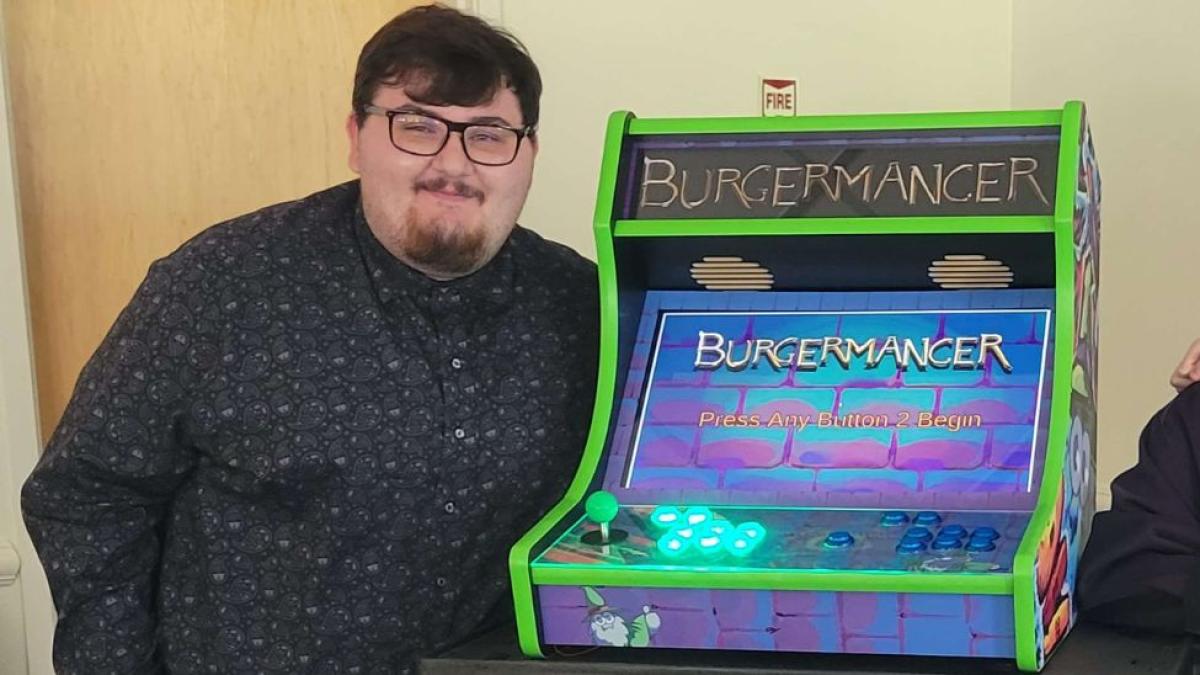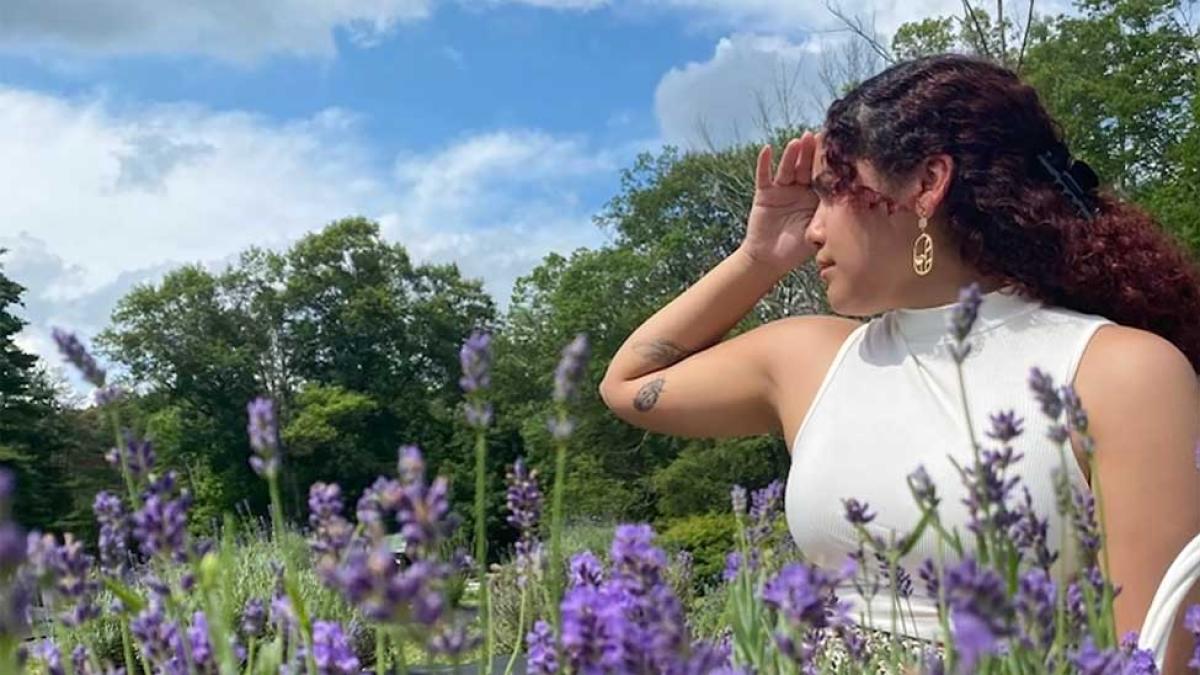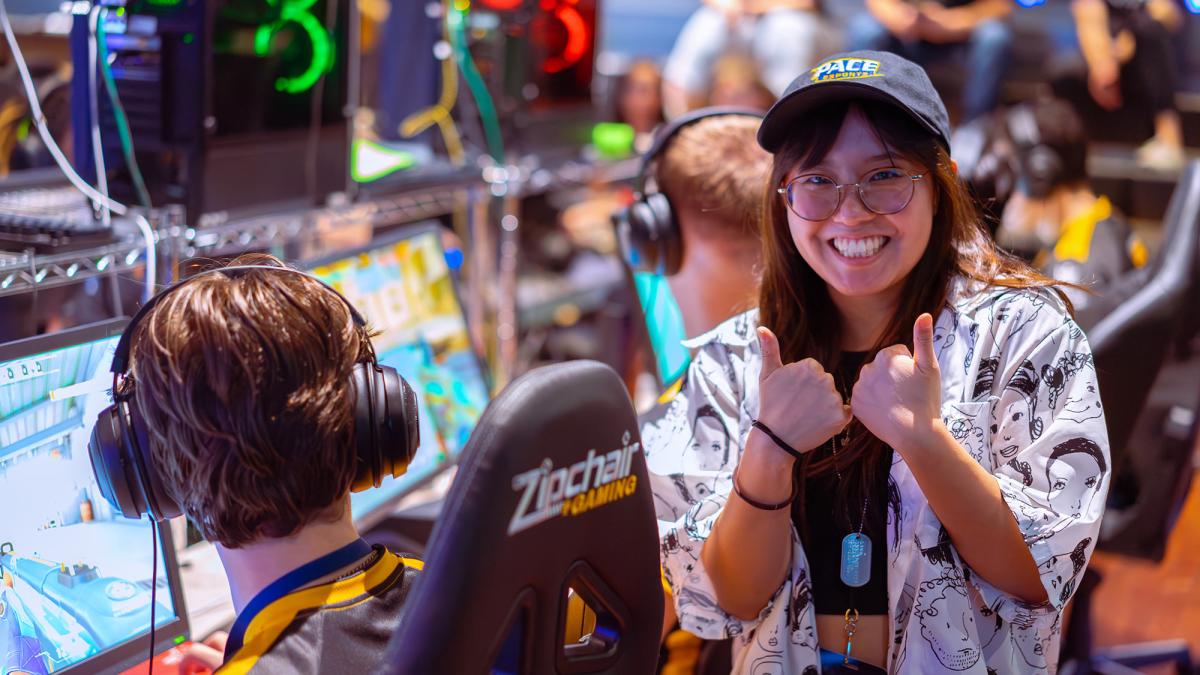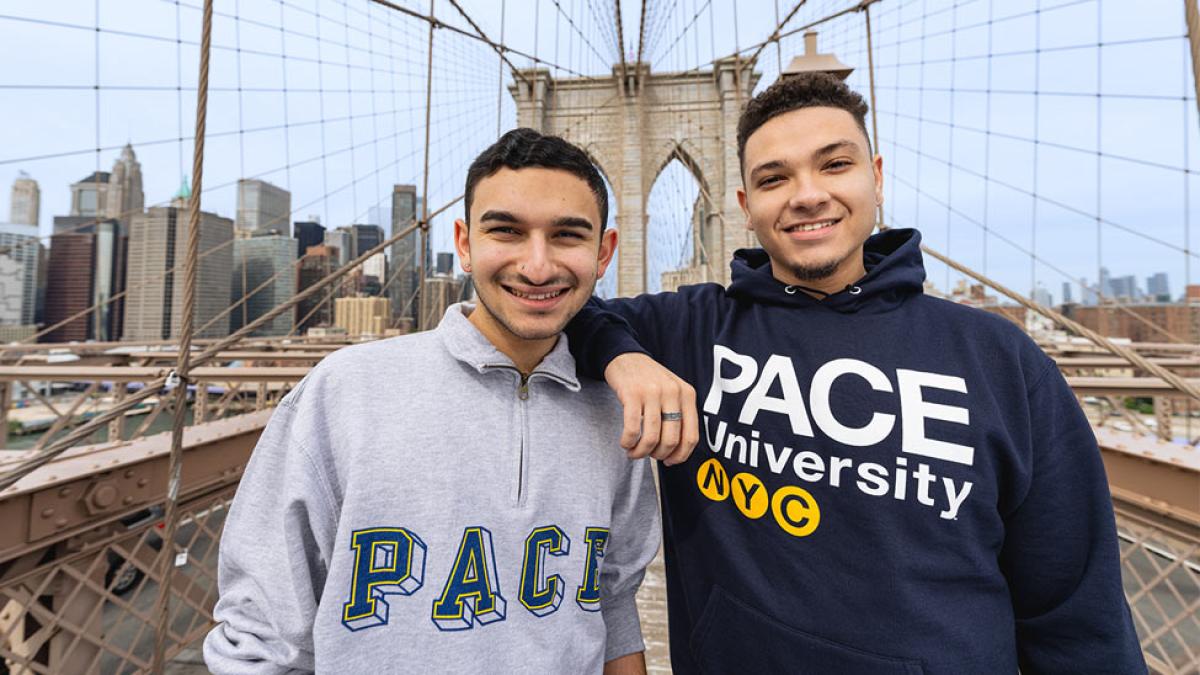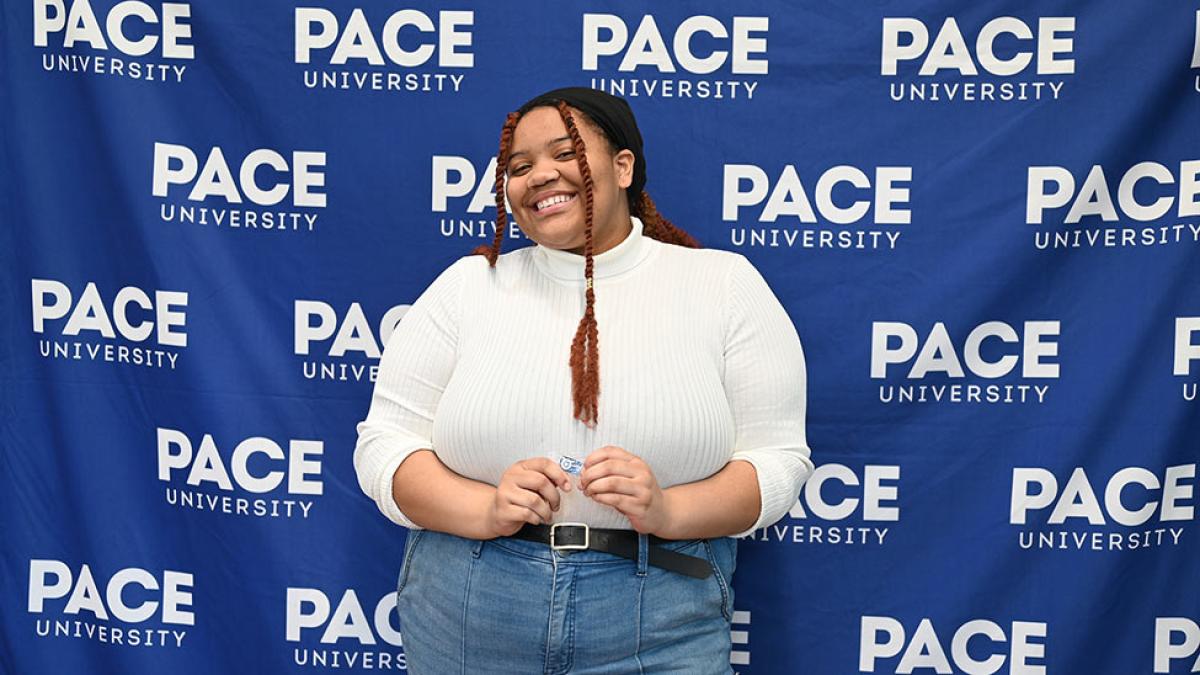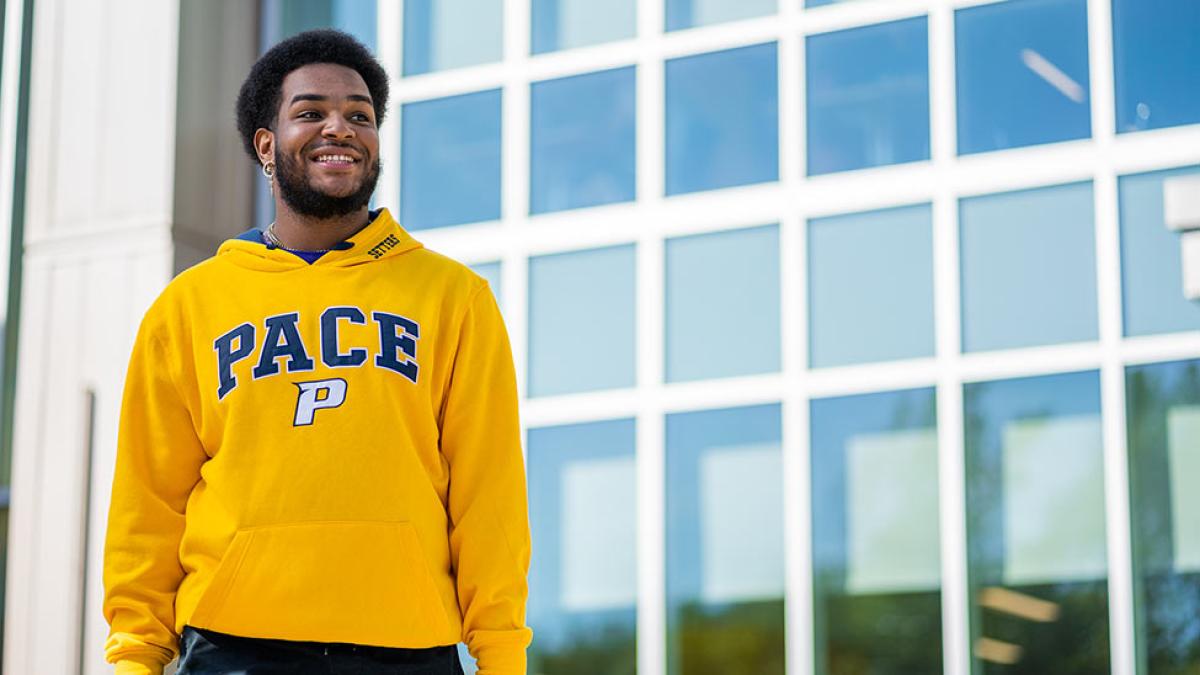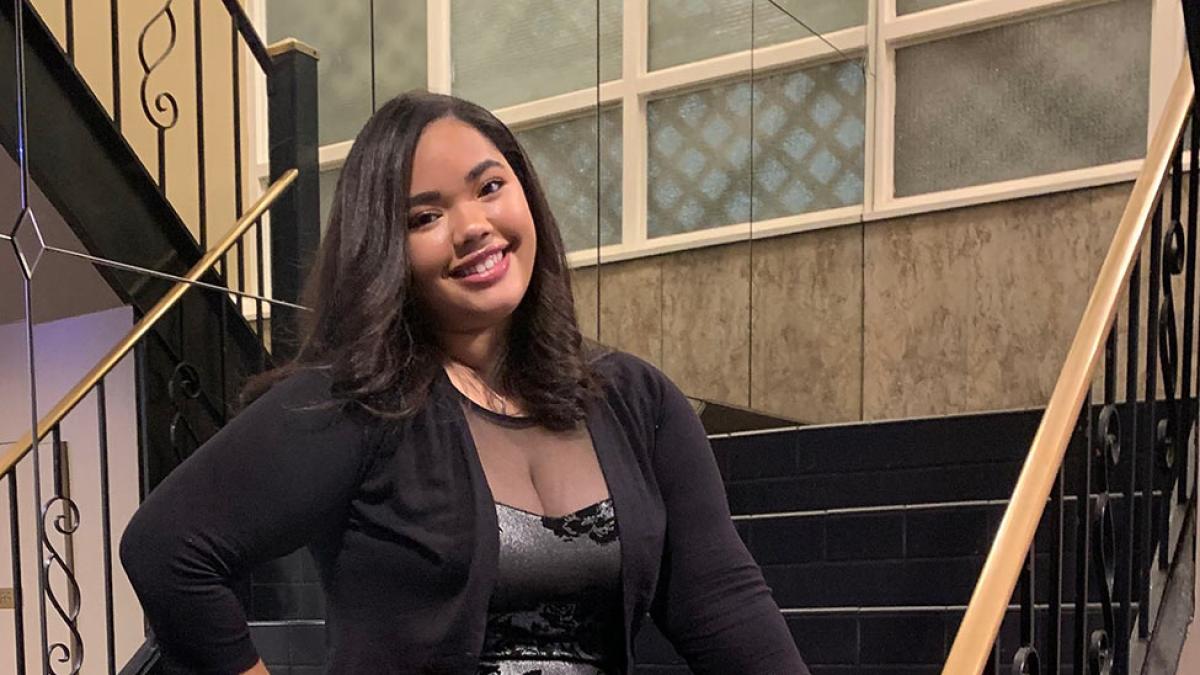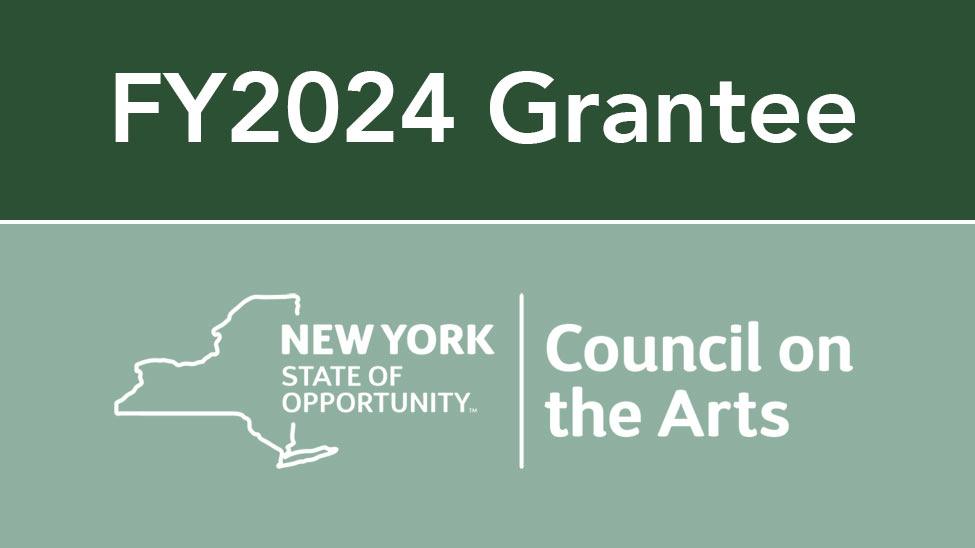
Pace University Art Gallery Receives Grant From New York State Council on the Arts
The Pace University Art Gallery has received a $20,000 grant from the New York State Council on the Arts (NYSCA), recognizing the quality of the gallery’s exhibitions over the past three years. The grant, which will support artist stipends and exhibit marketing, will take effect on January 1, 2024.
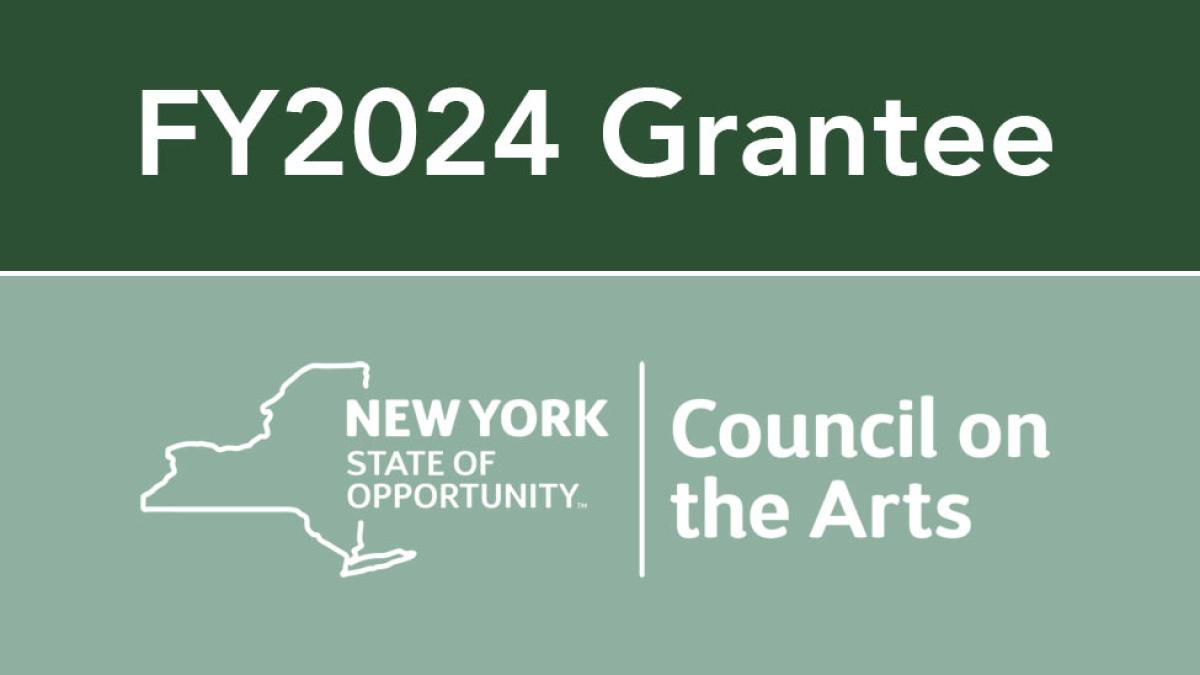

The Pace University Art Gallery has received a $20,000 grant from the New York State Council on the Arts (NYSCA), recognizing the quality of the gallery’s exhibitions over the past three years. The grant, which will support artist stipends and exhibit marketing, will take effect on January 1, 2024, beginning with an exhibit featuring contemporary comic book artists. Through New York State’s continued investment in arts and culture, NYSCA has awarded over $80 million since Spring 2023 to over 1,500 artists and organizations across the state.
“Pace University Art Gallery is dedicated to developing local partnerships that are so critical to reaching a diverse audience,” said Pace University Art Gallery Director Sarah Cunningham. “The support from NYSCA will help us continue to provide enriching, meaningful exhibitions and programming and enhance our outreach to our downtown community.”
Since its launch in its current space on the ground level of 41 Park Row in 2019, the Pace University Art Gallery has sought to provide innovative, thought-provoking exhibits and programs that are free and open to the public. The rotating exhibitions have highlighted diverse artists and a wide array of subject matter, including a partnership with New York Latin American Art Triennial’s multi-site exhibit and an exhibition showcasing art by New York City sanitation workers.
The Gallery also received a grant from NYSCA in 2023. The Gallery’s first NYSCA-supported exhibit in February 2023 was Degentrification Archives, a collection of pieces from the Chinatown Art Brigade amplifying the stories of those impacted by the gentrification of Chinatown near Pace’s downtown Manhattan campus. During the exhibit, the Gallery hosted an artist panel discussion, a zine workshop, and the launch of the Committee Against Anti-Asian Violence (CAAAV) archive.
Throughout 2023, the Gallery hosted three more exhibitions supported by NYSCA. To Be Made Whole featured work from five artists who sought to explore identity through representational imagery using tangible textiles. A solo exhibition by Firoz Mahmud entitled Inscaping Legacies reflected upon the histories of the South Asian Bengal region, connecting his roots to immigrant communities in New York City.
The current solo exhibition, Mother Octopus, features the work of Mie Yim, who, by breaking apart her cute characters with abstraction, invites the viewer to deeply feel her subjects’ dynamic inner states rather than to gloss over their sweet facades. The exhibit also includes a mural, which features a deep-sea cephalopod brooding her eggs. The mural was created in collaboration between Yim and students in Cunningham’s Introduction to Museum and Curatorial Studies course.
This exhibit, which remains on view through Saturday, January 20, 2024, is made possible by the New York State Council on the Arts with the support of the Office of the Governor and the New York State Legislature. The artist will also give a talk about her work on Tuesday, November 28, at 2:15 p.m. The gallery is located in Lower Manhattan at 41 Park Row. All of the gallery’s exhibits and events are free and open to the public. Regular gallery hours are Tuesday–Saturday from 12:30 p.m.–4:30 p.m. and by appointment.
About the New York State Council on the Arts
The mission of the New York State Council on the Arts is to foster and advance the full breadth of New York State’s arts, culture, and creativity for all. To support the ongoing recovery of the arts across New York State, the Council on the Arts will award $127 million in FY 2024. The Council on the Arts further advances New York's creative culture by convening leaders in the field and providing organizational and professional development opportunities and informational resources. Created by Governor Nelson Rockefeller in 1960 and continued with the support of Governor Kathy Hochul and the New York State Legislature, the Council is an agency that is part of the Executive Branch. For more information, please visit the NYSCA website, and follow NYSCA's Facebook page, Twitter @NYSCArts and Instagram @NYSCouncilontheArts.
Dan Ruben '91: Executive Director, Equal Justice America
When Dan Ruben was a 2L he read a small article in the NY Times about a program at another law school where students were raising money to fund summer public interest jobs. A self-starter, committed to public interest, he thought this program was a great idea and decided to start a similar one at Haub Law, which today, we know as PILSO.
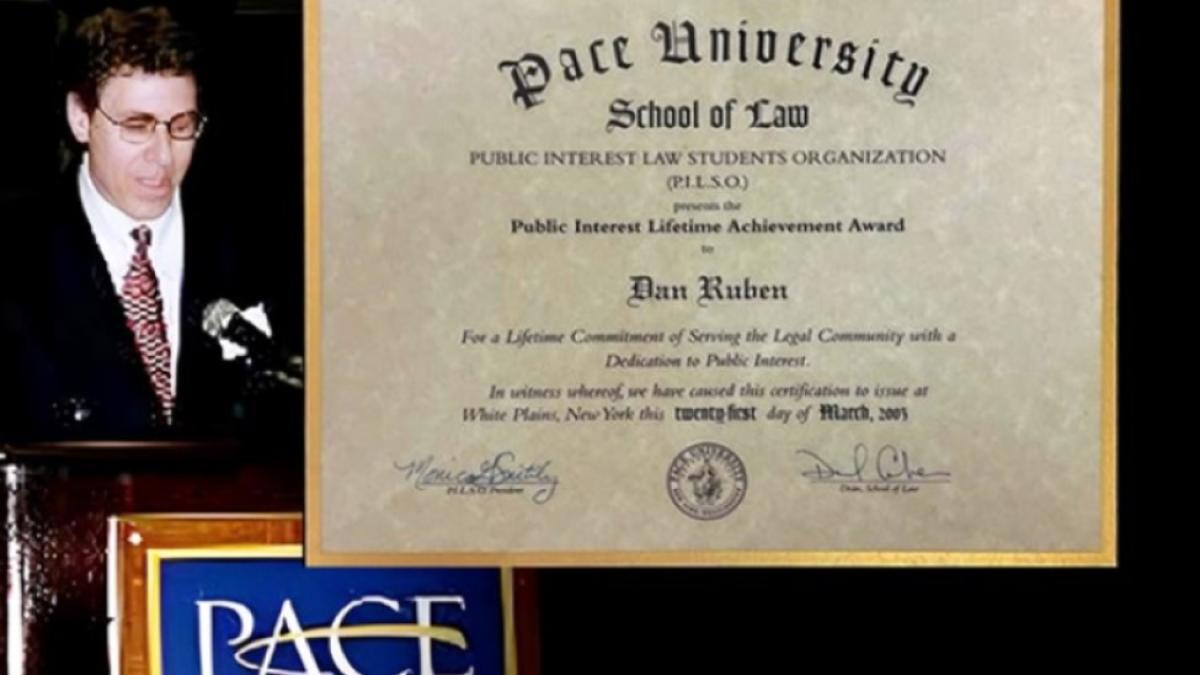
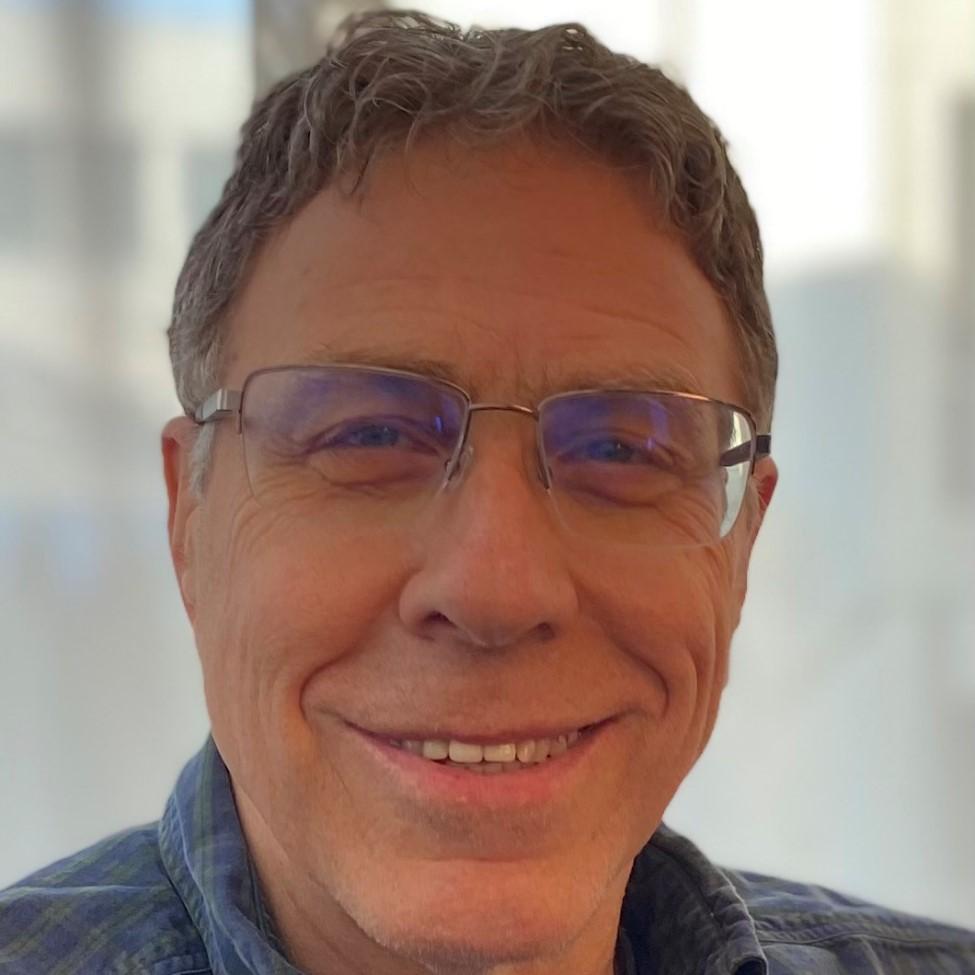
When Dan Ruben was a 2L he read a small article in the NY Times about a program at another law school where students were raising money to fund summer public interest jobs. A self-starter, committed to public interest, he thought this program was a great idea and decided to start a similar one at Haub Law, which today, we know as PILSO.
“To get the program off the ground, I went knocking on the office doors of every faculty member. I was surprised and very pleased that nearly all of them took out their checkbooks and made a contribution,” said Dan. “I realized that this idea could grow beyond fundraising at the level of a single school.” Dan describes starting PILSO as the highlight of his law school career. “The issue driving it—the lack of adequate legal representation for so many Americans—is so compelling, the need is so great, that I imagined such an organization could be successful on a national scale. I realized almost right away what I’d be doing when I graduated.”
In 1993, Dan launched Equal Justice America. His goal upon founding EJA was “to put as many law students and graduates as possible to work on behalf of people in need.” Dan wanted to help law students committed to public interest get hands-on experience that would help them achieve their career goals and thereby the greater good.
“I wanted to see our EJA Fellows become inspired by the work and turn their Fellowship experience into careers devoted to helping others in need. The organization started off modestly but has grown exponentially. In the summer of 1994, EJA awarded five law student fellowships. Since then, more than 6,000 law students have served as Equal Justice America Fellows working with more than 700 legal aid programs across the country. “So many of our EJA Fellows have done exactly what I had hoped. They’ve devoted their careers to public interest and provide shining examples of how the benefits of our program long outlive the duration of each individual fellowship.”
In more recent years, EJA has started funding post-graduate fellowships. “We currently have post-grad EJA Fellows advocating for domestic violence victims, veterans, young people trying to avoid the school to prison pipeline and human trafficking survivors,” said Dan. “Another post-grad EJA Fellow’s work is focused on civil rights, racial justice and ending the criminalization of poverty.”
In 2000, Equal Justice America partnered with the Elisabeth Haub School of Law at Pace University to establish its Disability Rights Clinic. “I was grateful to the Law School and wanted to give back.” One of EJA’s Board Members, David Santacroce, was the very first student at Pace to respond to Dan’s call to his fellow students for help launching PILSO. “David and I had conversations with Professor Vanessa Merton way back then and the EJA Disability Rights Clinic was the result of those conversations.” The Clinic was launched with a major grant and an ongoing commitment from EJA.
Over the years, the EJA Disability Rights Clinic led by Professor Gretchen Flint and more recently Professor Patricia Angley, has helped develop so many students into public interest attorneys and as a result helped so many low-income individuals with disabilities.
When Dan started law school, he wasn’t sure what he wanted to do. “I was looking for a way to try to do some good. When I had that great success in getting Pace faculty to support PILSO I knew that I was on to something and that I had found a way to use my law degree in a constructive way that would help lots of people who really needed it.”
Over the years, PILSO has remained steadfast in their commitment to helping students launch careers in public service. The student run organization runs public service networking events, career panels, and also collaborates closely with the thriving Public Interest Law Center (“PILC”). PILC was formed at Haub Law in 2009 to unite and expand the public interest programs and career opportunities at the Law School and has continued to grow and expand their initiatives.
In the early 2000’s, Haub Law and PILSO recognized Dan and his trailblazing efforts of founding PILSO and Equal Justice America with a Lifetime Achievement Award. “Dan has done more for the practice of public interest law in this country than any other Pace Law graduate,” Haub Law Professor Vanessa Morton wrote in an email to her faculty colleagues, which was read at the dinner that honored Dan.
Today, Dan is confident he made the right career path for himself in founding PILSO and ultimately, EJA. “The U.S. Constitution rightly guarantees that criminal defendants will be provided with legal counsel. There is no such right to counsel for people who are unable to afford lawyers in legal matters involving basic human needs - such as shelter, sustenance, safety, health, and child custody.
The Legal Services Corporation estimates that 80% of the legal needs of low-income people are not being met. “That justice gap needs to be closed,” said Dan. “Unfortunately, what EJA is able to do is really just a drop in the bucket. Legal aid programs need to be better funded to meet the need. However, in our own small way, I believe EJA has contributed to a better and more just legal system by encouraging students to make careers serving others and giving them the opportunity to get the experience necessary to have successful public interest careers. Countless thousands of individuals struggling to keep it together in difficult and often desperate situations have received help from our EJA Fellows during their Fellowships and during their careers as public interest attorneys.”
Equal Justice America is celebrating its 30th Anniversary this year, please consider a donation.
An Officer and a (Future) Lawyer: Eric Brown '25
Eric Brown has become accustomed to balancing work, school, and responsibilities throughout his life. Eric grew up in a single parent household where his mother instilled in him the importance of an education.
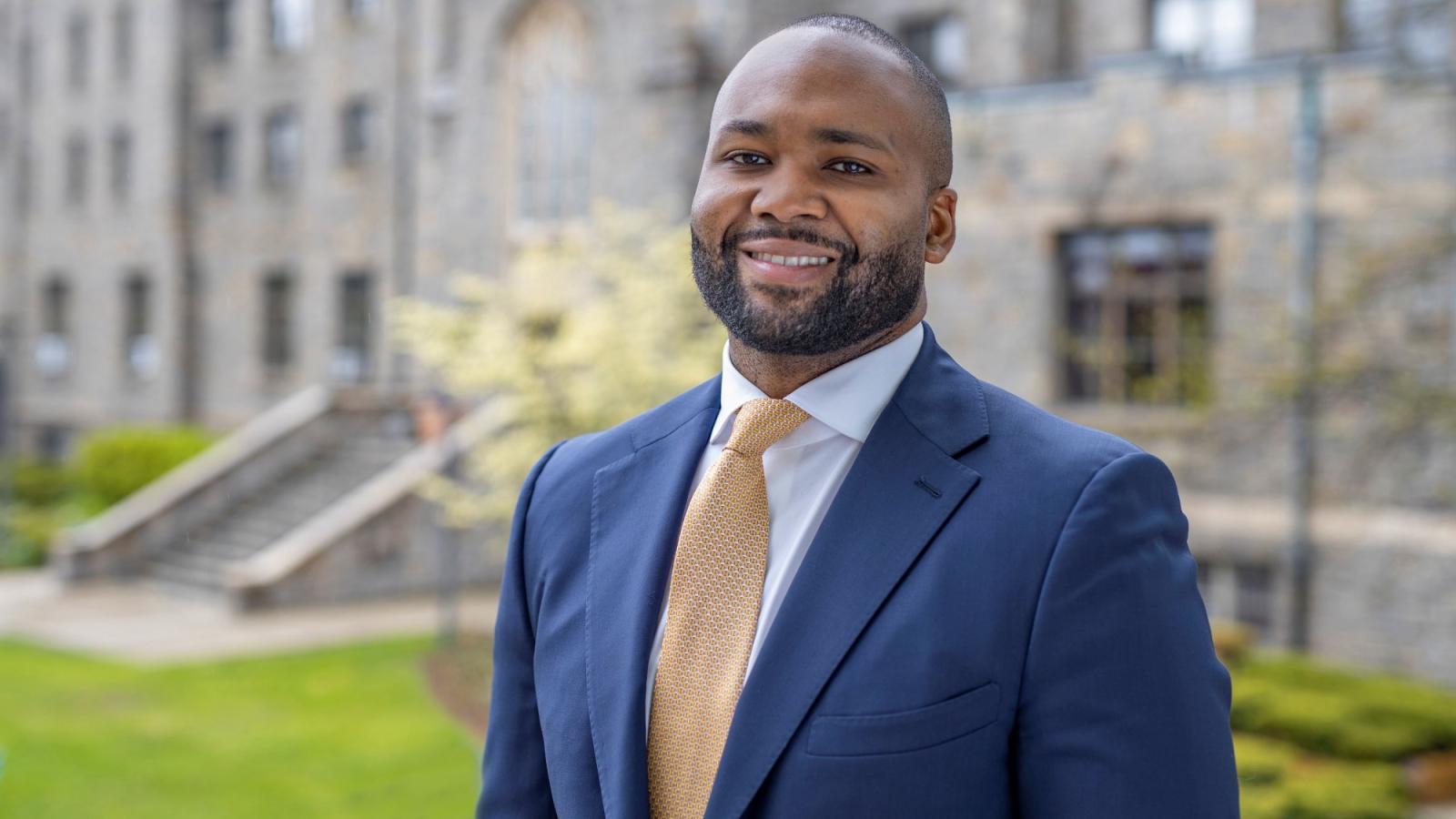
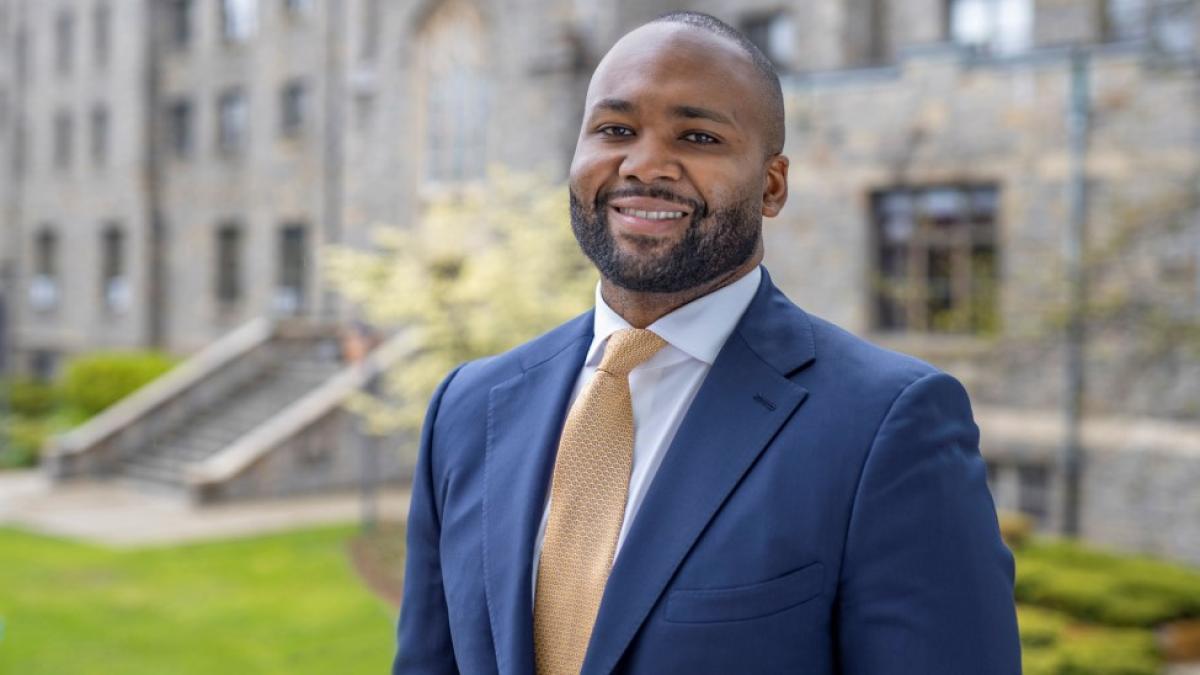
Eric Brown has become accustomed to balancing work, school, and responsibilities throughout his life. Eric grew up in a single parent household where his mother instilled in him the importance of an education. “My mother and grandmother’s backgrounds trace back to Puerto Rico,” said Eric. “They both worked from a very young age but were never pushed to pursue any sort of education beyond high school. After my mother finished high school and had my brother and me, she did start her college degree, but it was difficult as a single parent to continue while also working and raising two children alone. From a young age, she encouraged me to place a priority on my education.”
After Eric finished high school, he moved away from home and attended Manhattanville College while also working part-time. “I am the first to attend and graduate college in my family. After college, I also obtained my master’s degree from Seton Hall. Receiving my JD will be my third higher education degree.” Eric originally aspired to be a dentist, but quickly learned that he did not enjoy the coursework as much as he anticipated. “I was bored, but then one day I attended a job fair and met a professor who invited me to take a political science course. I fell in love with the curriculum and decided to pursue a degree in it.”
Shortly after graduating from college, Eric took the police department exam and began a career in law enforcement. Once he decided to attend law school, Eric sought out the perfect setting for him to do that – one where he could continue his job as a police officer and further his education. Haub Law was the perfect fit with its flexible part-time program. “I have worked part-time throughout all my educational pursuits. It has allowed me to honor my upbringing, provide for myself, and my family.”
Eric acknowledges that the busy schedule of being a part-time law student along with a police officer is not without its struggles at times, but also very rewarding. “Having the experience as a police officer has been very beneficial, it allows me to see both sides of the law and view things more objectively. While I am constantly on the go, my outlook has always been positive and that anything is possible if you stay focused and humble. This is especially true if you stay confident in yourself while never being afraid to ask for help.”
For Eric, help when he needs it, has been readily available at Haub Law. “I personally love the extra support that is always given by the staff and professors here. And, my classmates are amazing, they are always willing to help one another out. The level of comradery is extraordinary.” In particular, Eric is thankful for the support he has received from the Honorable Daniel D. Angiolillo, who is the Jurist-in-Residence at Haub Law and also, Dean for Students Angie D’Agostino. “Both of these individuals have instilled so much wisdom in me and so much support. In my life, I have learned that the right people will always show up when you need it and that has proven very true here for me.”
As a part-time student, Eric is set to graduate in 2025 from Haub Law. He spent his spring 2023 semester as a judicial extern for the Honorable Adam Silvera, an Administrative Judge in the Civil Division of the New York State Supreme Court. As far as future goals, Eric is taking it one day at a time. “I really enjoy my career in law enforcement, but I can also see myself in the private sector. I try to have an open mind about the future.”
Faculty Focus: Professor Camila Bustos
Joining the Elisabeth Haub School of Law at Pace University in 2023 as an Assistant Professor of Law, Professor Camila Bustos is one of Haub Law’s newest faculty additions.
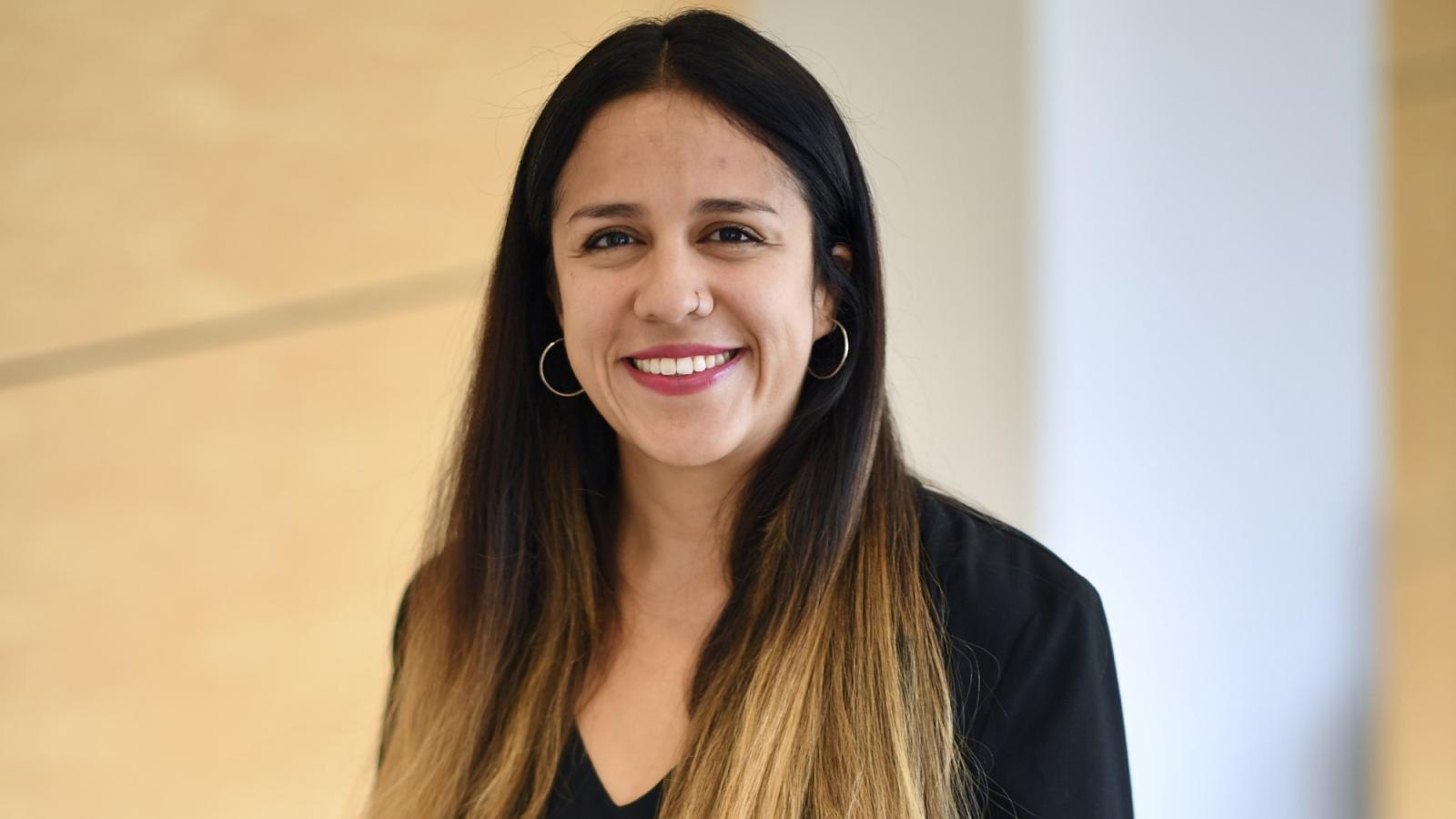
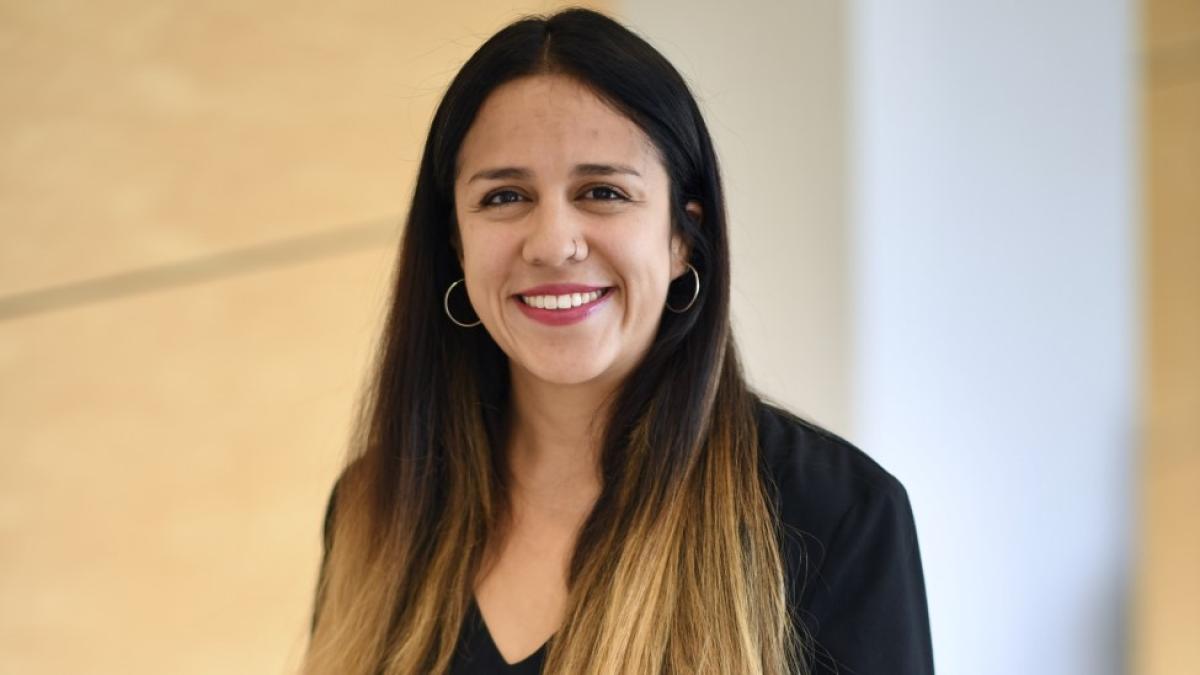
Joining the Elisabeth Haub School of Law at Pace University in 2023 as an Assistant Professor of Law, Professor Camila Bustos is one of Haub Law’s newest faculty additions. Originally from Bogota, Colombia, Professor Bustos shares a passion for human rights law and climate change law. Prior to joining Haub Law, Professor Bustos was a Visiting Assistant Professor of Human Rights at Trinity College and a Clinical Supervisor in human rights practice at the University Network for Human Rights. She also served as a term law clerk to Justice Steven D. Ecker of the Connecticut Supreme Court and as a consultant with the International Refugee Assistance Project (IRAP). At Haub Law, she will be teaching an International Human Rights Seminar, an Environmental Law Survey course, and the Environmental Law Seminar: Climate Change & Migration. Learn more about Professor Bustos and the fresh, innovative perspective she brings to her research, scholarship, and the classroom in this Q&A.
Let’s jump right in, can you tell us a bit about your background?
I am originally from Bogota, Colombia and I moved to Miami when I was thirteen. This period in my life was deeply formative and continues to inform how I navigate and approach my personal and professional life. My time in Miami exposed me to different languages, cultures, and ways of thinking, which has always made me intellectually curious about meeting new people and traveling to new places. In addition to having Spanish as my native language, I have been learning Portuguese. I also try to stay connected to Latin American issues as much as I can (news, culture, music, etc.).
My time growing up in Miami also showed me the arbitrariness of borders and the way in which having legal status can transform someone’s life. Growing up in a city of immigrants and being an immigrant sparked my interest in immigration law – its development, limitations, and opportunities for change.
During college, I spent a lot of my time between research and advocacy spaces. I researched international climate politics, while engaging in fossil fuel divestment campaigns. I became interested in how law and policy can be leveraged to tackle problems like climate change. Afterwards, I spent two years working for a Colombian human rights organization before returning to the States for law school.
Your research interests and areas of expertise include human rights law, environmental law, international environmental law, and climate change law – what is it about those areas that hold your interest?
Climate change is one of the greatest challenges that humanity faces, if not the greatest. As with other environmental problems, climate change is inherently a global problem that requires international cooperation in addition to strong domestic action. These areas seek to understand how global politics and policies may hinder or facilitate progress.
I see environmental issues, including climate, as intrinsically human rights issues. They entail a range of impacts with severe consequences for the fulfillment of human rights, necessitating decisive State action to protect people and ecosystems.
Further development of human rights and environmental law is essential to hold accountable the most powerful actors behind the crisis, namely fossil fuel companies, carbon-intensive industries, ultrarich individuals, and top-emitter States. Despite its limitations, I am interested in how law can be leveraged by affected communities and individuals alike to seek justice in a deeply unequal world.
What are some of your current research interests and projects?
I am interested in continuing to think and write on the legal protection gap for climate displaced people at the international and domestic levels. I am also interested in further exploring the duties of States— as rooted in human rights law or ethics more broadly—to climate displaced people. My forthcoming article Climate Change and Internal Displacement in Colombia: A Tragedy Foretold? looks at the development of separate protection regimes for internally displaced people.
While there is a legal framework for those displaced in the context of armed conflict (e.g., think about abuela in the Disney movie Encanto), individuals displaced by environmental and climate events fall under the disaster policy framework. Through the case study of Gramalote, Colombia—the first municipality in Colombia displaced by climate-related events—I argue States must protect the right of populations to stay in place and return when possible.
I have also been researching the implications of climate change for the legal profession writ large, looking at the ways in which the climate crisis requires a transformation in how lawyers practice law and conceive of their professional responsibility. I am keen to explore legal ethics through a comparative perspective, focusing on the UK and the US for now. I am currently working on a book chapter for the forthcoming publication Educating lawyers for climate and environmental justice: theory and practice (2024).
You have recently published articles on climate migration and displacement – can you speak a bit more about that research area and the overall big picture impact you see that having on different people/groups and society as a whole?
Although exact figures on climate displacement projections vary, climate change will continue to force people to move internally and across borders. This is a tremendously complex issue, with implications for administrative, immigration, and international law, among others. I am keen to contribute to this debate for a few reasons.
First, climate change disproportionately impacts groups that have been historically marginalized or discriminated against. Displacement often impacts individuals with more limited resources to adapt and whose high exposure to climate risk might push them over the edge.
Second, the scale of the challenge requires scholars and practitioners to collaborate on policy gaps and potential solutions.
The last few articles I published focused on climate migration and displacement from different angles: (1) how do climate displaced people experience climate catastrophes, relocate, and establish new lives after displacement; (2) how does human rights law apply in the context of environmental and climate displacement in Central America and Colombia; and (3) what legal avenues, domestic and international, are available to protect climate displaced people whether internally or across borders?
Why did you want to become a professor?
It’s a bit of a funny story. For years, my partner had encouraged me to think about becoming a professor. I’ve always been intellectually curious and most of my professional experience before joining Pace involved significant research and writing. Before seriously considering academia, I was already writing articles “for fun” with colleagues. Even then, I thought I would practice law for several years before considering an academic position.
However, the opportunity to teach an undergraduate class and work closely with undergraduate and law students was transformative. I realized how amazing it was to be surrounded by students and how much more deeply I was able to think about issues when teaching and facilitating enriching discussions. Having a profession where you can teach, think, write, and collaborate is such an exciting and privileged career. Although becoming a professor was unexpected in some ways, I feel incredibly lucky to have joined the Pace community.
As a professor you are tasked with teaching students, but what have you also learned from them in return?
I love this question. I am going to cheat and quote Claudia Goldin, who recently won the Nobel economics prize for her groundbreaking work on wage inequality. During an interview, Goldin emphasized the role of students in her research:
“I am a professor; I am a teacher. I am standing here because I have my students. And my students are my muses; my students are the individuals I depend upon to listen to my ideas and react to them. Everyone should realize that teaching is the handmaiden of research. Research is knowledge creation; teaching is knowledge diffusion. And we do both.”
I learn from my students in every single class. They bring unique and fresh perspectives to new and old problems; they challenge me to crystallize my thinking and ideas. They make me a better thinker and scholar. Most importantly, they make me a better person by helping me question my own assumptions, biases, and paradigms.
What advice do you have for law students – generally and more specifically to those who want to gain experience in human rights law?
First, I would encourage students to try learning a second or third language if they can. While English remains the lingua franca in many international spaces, understanding other languages will open doors to different regions of the world and areas of practice. It also demonstrates humility and intellectual curiosity, which any future employer would value.
Second, I would advise students to engage with all the critical scholarship on human rights law. There are significant foundational and theoretical questions underpinning human rights practice. To name a few, are human rights universal? If so, what do we mean by that? Can human rights be a transformative project despite some of its practical limitations and historical origins? Reading critical approaches to international law (i.e., TWAIL or feminist critiques) makes us better human rights scholars and practitioners.
Third, find what you are passionate about. Human rights law is a broad area, encompassing a range of issues from racial discrimination, armed conflict, gender equity, environmental protection, etc. There are also different points of intervention: local, national, and international. I encourage students to think creatively about “human rights”, their own set of skills, and in what capacity they would like to contribute their talents.
You also co-founded Law Students for Climate Accountability (LSCA), a national law student-led movement pushing the legal industry to phase out fossil fuel representation and support a just, livable future – can you talk about what led you to found this movement and the importance of it? And, your best advice for how students can effect this type of very impactful push towards change like you did/have.
Like many others in my generation, I decided to go to law school to use the law to work on climate change issues. While I found the 1L doctrinal courses interesting, I found myself frustrated at both the failure of most 1L curriculums to address climate issues and the collective pressure to go work at a corporate law firm after law school.
While law firms are not monoliths, many of the largest and most prestigious firms conduct extensive lobbying, litigation, and transactional work on behalf of the fossil fuel industry. In response, a group of us decided to explore the ways in which “Big Law” upholds the fossil fuel economy and often hinders climate action by producing the first-ever Climate Change Scorecard.
Since 2020, LSCA has grown into a national and international movement, with colleagues in the UK, Canada, and Australia working on similar initiatives to hold the legal industry accountable. We have produced four iterations of the Climate Change Scorecard and have organized students across dozens of campuses in the United States.
My advice to students is to remember their own power to effect change. The legal profession and legal institutions are by default small “c” -conservative and resistant to change. It takes persistent and organized efforts to change social institutions, but it is possible.
As an undergraduate student, I remember several administrators and professors told us that fossil fuel divestment was simply “impossible” and would never happen. Today, more than twenty universities have partially or completely divested their endowment from fossil fuels and the movement has only continued to build momentum.
While I understand the pressure students face in securing a job after graduation, students shouldn’t forget that they hold the power of their talent.
Aside from law, how do you spend your spare time?
I love spending time with my dog Spice and must admit a lot of time goes into walking, brushing, and cuddling him. I also enjoy running and spinning —I am a huge Peloton fan (sorry not sorry). Aside from that, you can find me singing and dancing to Bad Bunny or Taylor Swift on repeat, going on walks and hikes across Connecticut, and attending concerts and music festivals with my partner.
SJD, A Crucial Degree: Daniel Castelo Branco Ramos '21
As a federal judge in Brazil, Daniel Castelo Branco Ramos describes his day to day as “overwhelming.” With the number of cases per judge always in the thousands, one of the highest on average in the world, Judge Ramos is lucky if he has any down time at all.
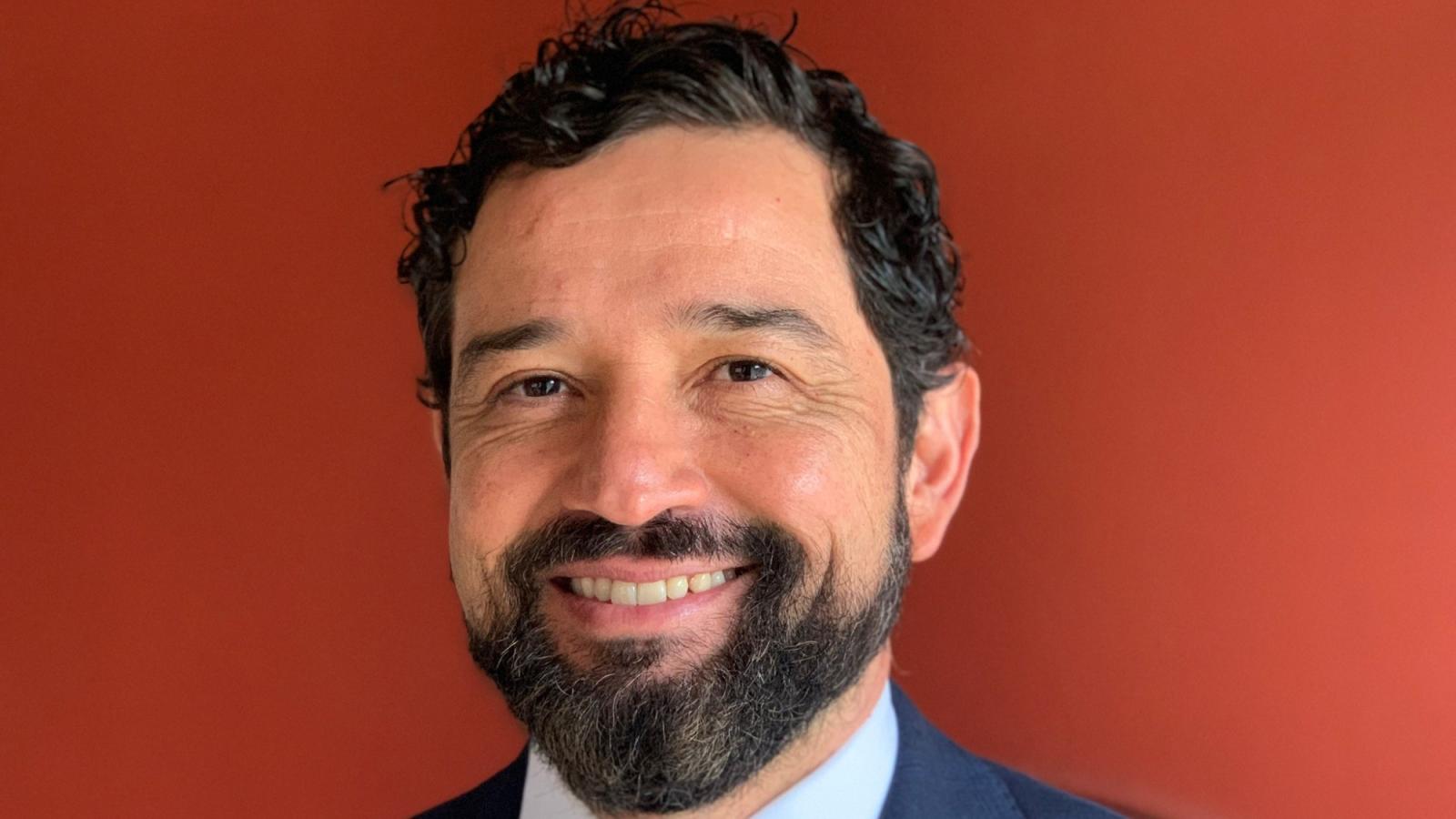
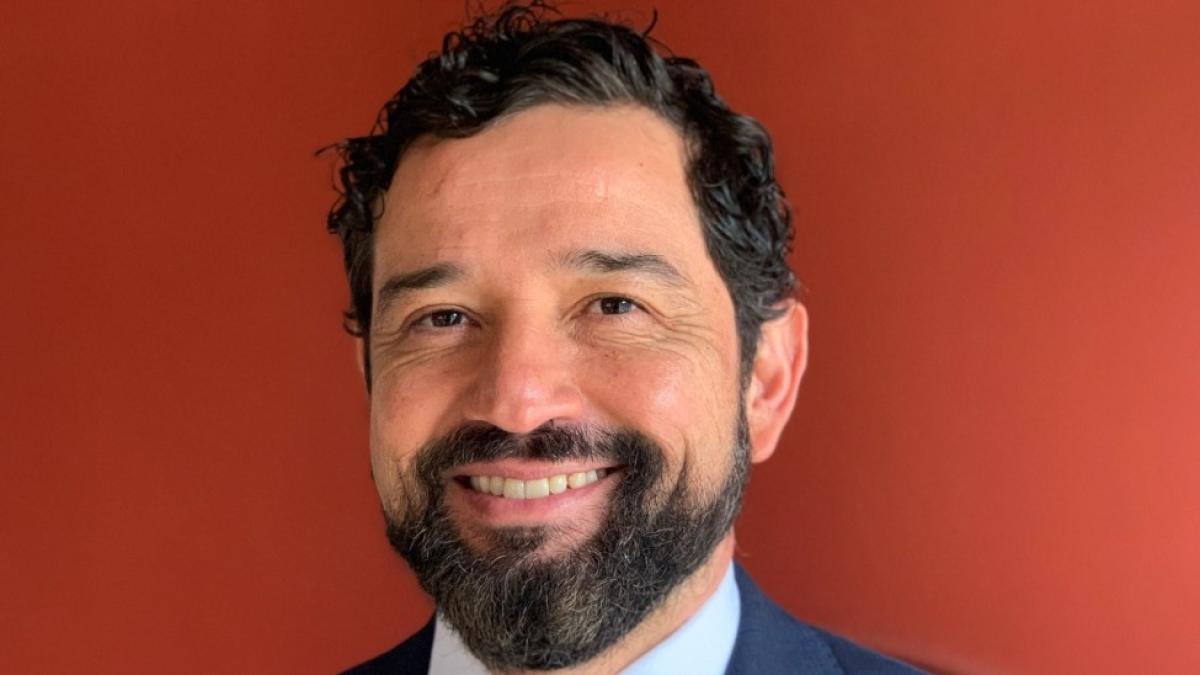
As a federal judge in Brazil, Daniel Castelo Branco Ramos describes his day to day as “overwhelming.” With the number of cases per judge always in the thousands, one of the highest on average in the world, Judge Ramos is lucky if he has any down time at all.
“Many of my cases involve a lot of litigation. Each morning, I dedicate myself to studying the most complex cases, elaborating on, and editing my opinions. In the afternoon, I attend to the lawyers, preside over hearings, and coordinate my advisors. As a morning person, this division of tasks works well. Even though it is extremely busy, I enjoy what I do, both the intellectual tasks and the personal contact with lawyers and litigants.”
Judge Ramos is also a professor, teaching environmental law, tax law, administrative law, and civil procedure law at the Milton Campos Law School, a private law school in Brazil. “Learning has always been of interest to me and in turn, so has teaching. I graduated with a degree in law from the Federal University of Minas Gerais 1998, which is one of the most traditional and respected universities in Brazil. I later received a master’s degree in public law in 2009 from the same University.”
It was Judge Ramos’s interest in both learning and environmental law that led him to pursue his SJD at Haub Law. “I knew Haub Law’s strong reputation and decided to apply for the doctoral program in environmental law. In addition, the differences between the legal systems in the United States and Brazil motivated me to do more in-depth comparative law research.” While he was a student at Pace, Judge Ramos had what he describes as many outstanding professors, including David Cassuto, Jason Czarnezki, and Nicholas Robinson.
While Judge Ramos describes the SJD program at Haub Law as one of the toughest intellectual and personal tasks of his life, he is very cognizant of the importance of the end result. “I work with environmental litigation and teach environmental law. The knowledge that I acquired during my SJD studies was crucial both in solving practical day-to-day issues and in deepening my legal thinking and research. Additionally, being immersed in a learning environment with a social and legal culture so different from the one I was used to was invaluable.”
When he isn’t behind the bench or in the classroom, Judge Ramos enjoys immersing himself in the nature of his home state, Minas Gerais, its many nature reserves, impressive waterfalls, fauna and flora. He is also very interested in the arts, literature, and music.
Dean Horace Anderson Honored with Nonprofit Westchester’s 2023 Changemaker Award
Horace E. Anderson, Jr., Dean of the Elisabeth Haub School of Law at Pace University, was honored as a recipient of the 2023 Changemaker Award by Nonprofit Westchester (NPW) at the organization’s Keep Westchester Thriving Awards Ceremony last week.
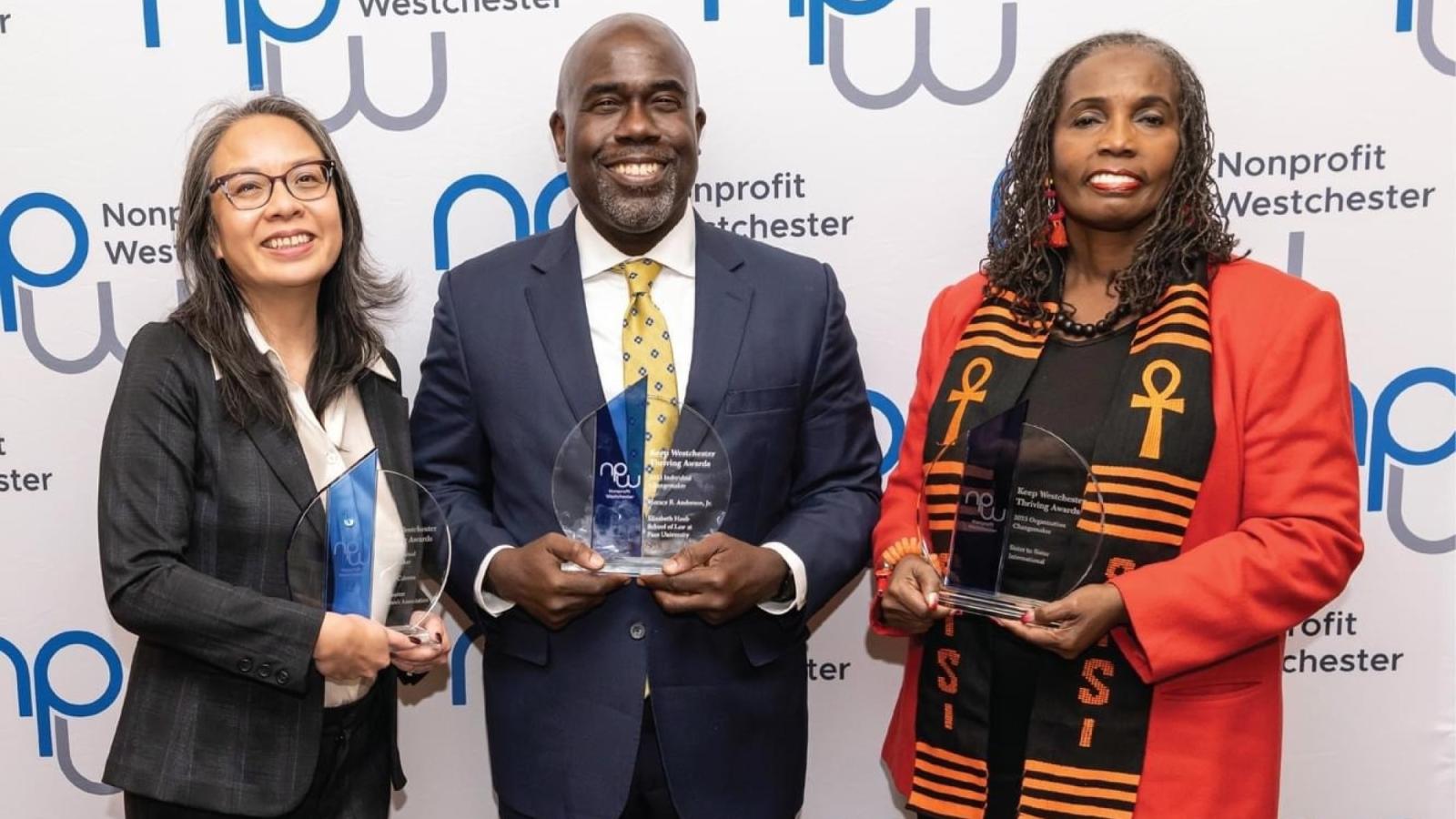
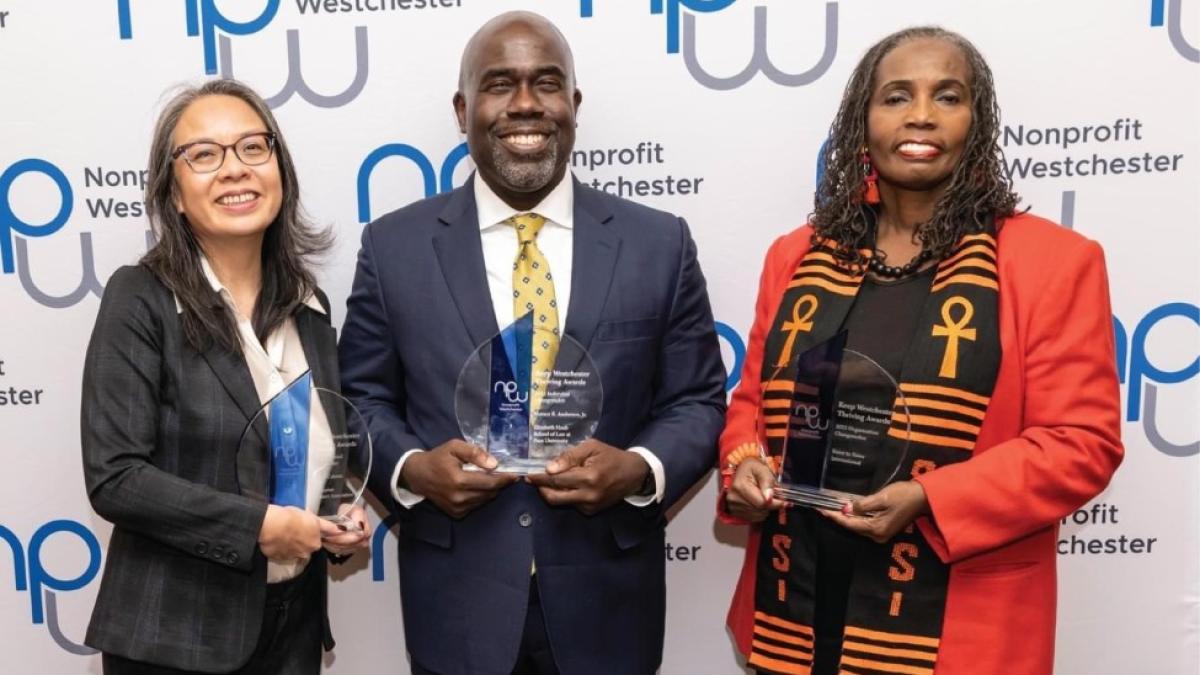
Horace E. Anderson, Jr., Dean of the Elisabeth Haub School of Law at Pace University, was honored as a recipient of the 2023 Changemaker Award by Nonprofit Westchester (NPW) at the organization’s Keep Westchester Thriving Awards Ceremony last week.
More than 300 supporters attended the event to celebrate the work of NPW and to honor the 2023 award recipients for their remarkable contributions to their organizations' missions, their transformative impact on clients' lives, and their unwavering dedication to addressing critical systemic gaps in our society. Dean Anderson was joined by fellow honorees Kathy Halas, Executive Director, Child Care Council of Westchester, Limarie Cabrera, Director of Data, Westchester Children’s Association, and Cheryl Brannan, Founder and CEO, Sister to Sister International.
The 2023 Changemaker Award was presented to Dean Anderson in recognition of his leadership creating a culture of collaboration, community service and innovation at Haub Law. During his tenure as Dean of the Law School over the past four years, Dean Anderson has lead the introduction of many new programs and initiatives that have strengthened ties with the community, including the Access to Justice Project, the Legal Hand Call-In Center Serving Westchester County, and the Sustainable Business Law Hub, as well as programs for student wellbeing and engagement, partnerships to improve diversity in the legal pipeline, and enhanced services for the community through Haub Law’s centers and clinics.
“Your leadership, intellect and humility have enriched our community and we feel it deeply in the nonprofit sector and through Westchester,” said Michelle A. Nicholas, Founder and CEO of The Nico Consulting, who presented the award in front of a supportive and enthusiastic audience.
Dean Anderson accepted the award, taking time to acknowledge the work and support of Law School administration, staff and his family in his accomplishments. He thanked the NPW and the nonprofit sector for their support of Haub Law’s mission and their tireless work to make Westchester County a more equitable community.
“This room supports Westchester in ways that a lot of people don’t see, but are vital,” he said. “There is nothing about making this a more equitable county, and county that supports opportunity more, and a county that supports wellbeing more that doesn’t start with the people in this room.”
Empowering Equality: Inside the JJLS Equal Justice America Disability Rights Clinic, Where Students Drive Change
In an effort to foster community engagement and provide free legal resources to seniors, Haub Law’s John Jay Legal Services Equal Justice America Disability Rights Clinic (“the Clinic”) recently participated in the Livable Communities Senior Village Fair, an event dedicated to the well-being and empowerment of our elder citizens. The Livable Communities Senior Village Fair is a community wide event that brings together older adults, their families, and local organizations.
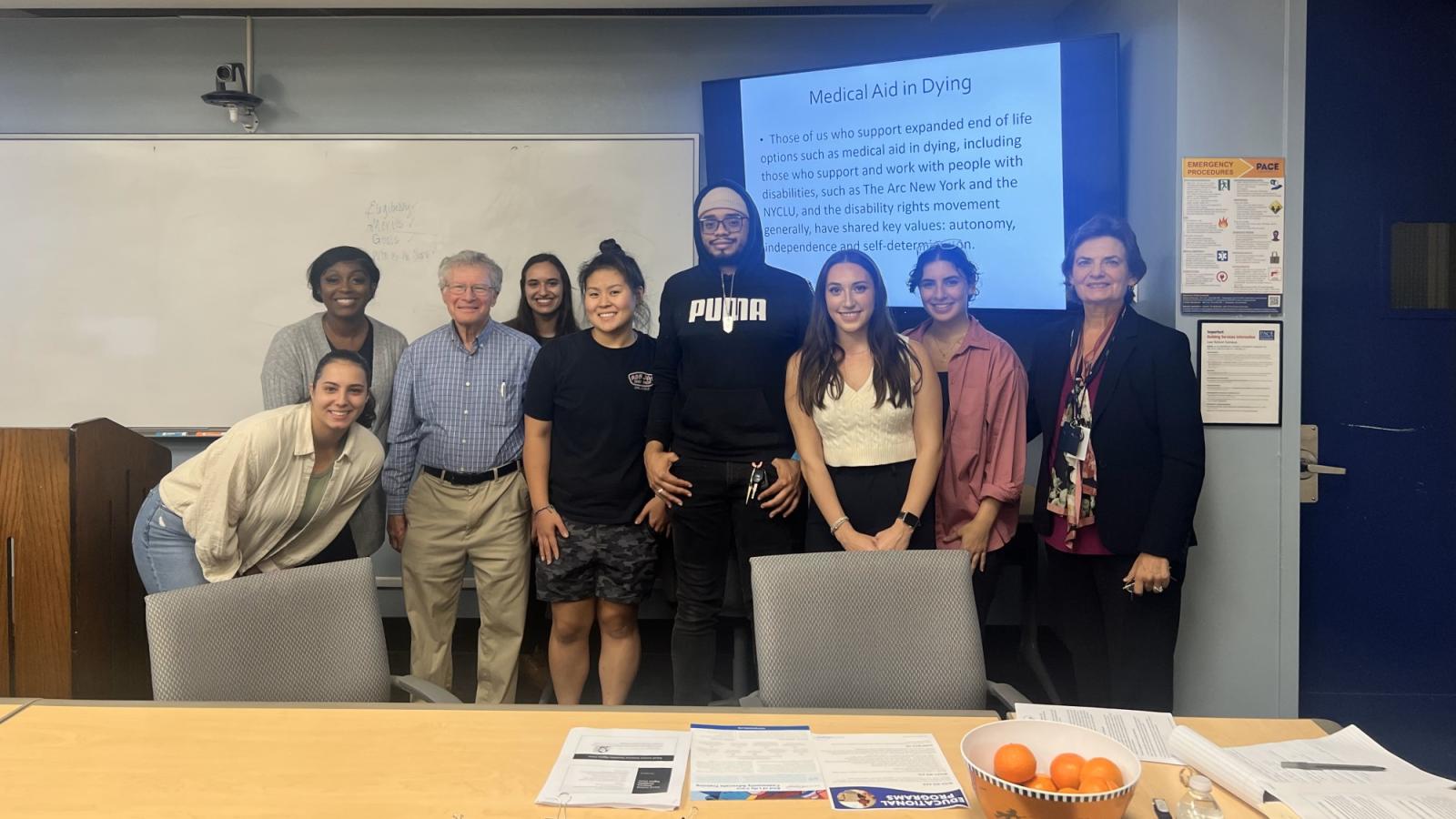
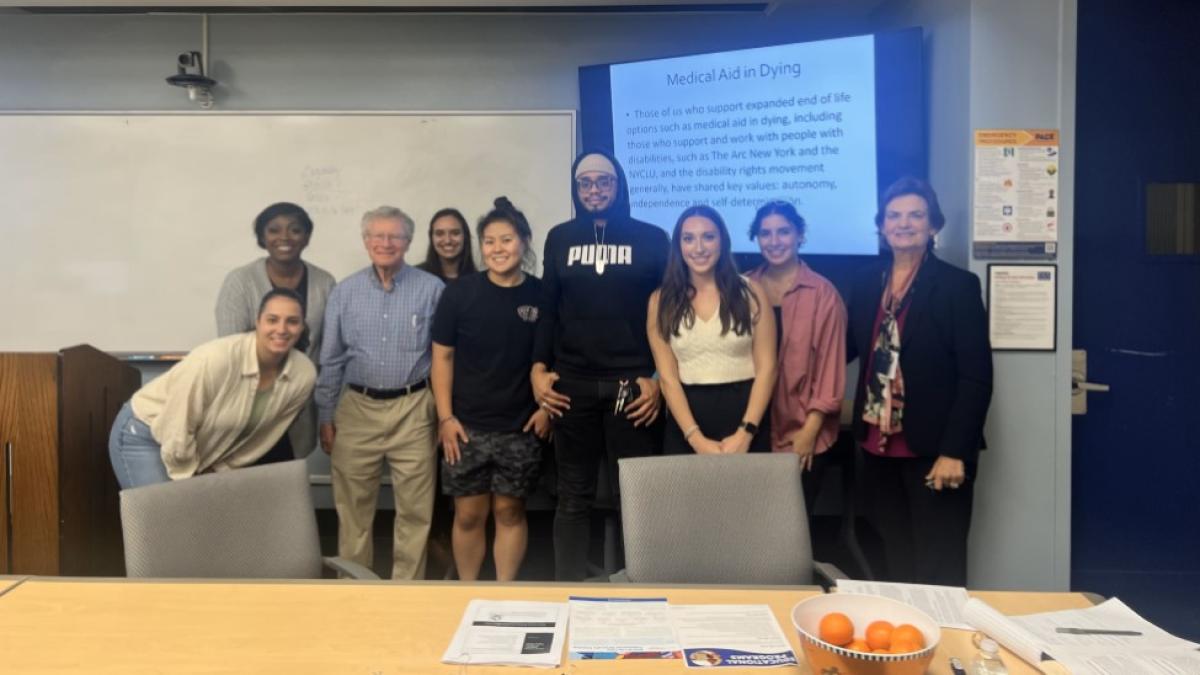
In an effort to foster community engagement and provide free legal resources to seniors, Haub Law’s John Jay Legal Services Equal Justice America Disability Rights Clinic (“the Clinic”) recently participated in the Livable Communities Senior Village Fair, an event dedicated to the well-being and empowerment of our elder citizens. The Livable Communities Senior Village Fair is a community wide event that brings together older adults, their families, and local organizations. This event served as a platform for seniors to connect, learn, and access important resources that can significantly impact their quality of life. These fairs offer a wide array of services and resources, ranging from health screenings and wellness seminars to legal advice and social activities. The goal is to empower seniors with the knowledge and tools they need to lead fulfilling and independent lives.
One of the crucial services that the Clinic offered was the provision of Healthcare Proxy forms, allowing individuals to appoint trusted agents to make their healthcare decisions and ensure their wishes are respected in times of need. A Healthcare Proxy, also known as a Medical Power of Attorney, is a legal document that allows an individual (the "principal") to appoint a trusted person (the "agent" or "proxy") to make healthcare decisions on their behalf in the event they become incapacitated or unable to communicate their wishes. This document ensures that the individual's preferences regarding medical treatment, end-of-life care, and other health-related matters are respected.
At the Livable Communities Senior Village Fair, the Clinic recognized the importance of empowering seniors to take control of their healthcare decisions. Many seniors may not have considered or signed a Healthcare Proxy, often thinking that family members will automatically have the authority to make medical decisions on their behalf. However, without a legally designated proxy, important healthcare decisions may be made by individuals who may not be aware of the senior's specific wishes. The students on the Clinic team provided informative sessions on the significance of Healthcare Proxies, explaining the legal implications and benefits of having one in place. Student team members walked attendees through the process of selecting a trusted agent and discussed common concerns and considerations when completing the form.
Haub Law clinic participants noted that the response from attendees was overwhelmingly positive with many seniors expressing relief and gratitude for having the opportunity to address this important aspect of their healthcare planning. “Seniors left the fair with a tangible tool that could provide peace of mind to both them and their loved ones,” said Gabriella Pereira ’24. “Furthermore, families of the seniors were appreciative of the guidance provided, recognizing the importance of clear healthcare directives in ensuring their loved ones' wishes are respected and followed.”
Haub Law clinic students described the Livable Communities Senior Village Fair as an enriching experience for all involved. “By offering Health Care Proxy forms and educating seniors on their significance, the Equal Justice America Disability Rights Clinic took a significant step towards empowering older adults to make informed decisions about their healthcare,” said Patricia Angley, Director of Equal Justice America Disability Rights Clinic. “This event serves as a reminder of the positive impact that legal support and community engagement can have on the lives of seniors, helping them to lead healthier, happier, and more fulfilling lives.”
A component of the Equal Justice America Disability Rights Clinic is a seminar class. Throughout the fall semester, several visitors have spoken as part of the seminar class. These speakers have educated the student attorneys on several topics and issues that affect the elderly and disabled population. The first speakers were Roberta Goodman Esq., from the Elisabeth Haub School of Law at Pace University’s Women’s Justice Center and Stefanie DeNise, Esq., law clerk to Administrative Judge Anne. E. Minihan and adjunct law professor. “Both speakers discussed the ways that advancements in technology can be used to target the elderly, noting that the growing number of scam calls have advanced, and scammers continue to target the elderly and vulnerable members of our society,” said Silvana Martinaj ’25. “The speakers stressed the importance of educating the vulnerable people in your life about these scams and shared their efforts in helping those who have fallen victim to them.”
Later in the semester, David Leven, Esq., spoke in the seminar class about the importance of advance care planning, health care proxies, and choosing a healthcare agent. He also spoke about Medical Aid in Dying (MAID), currently proposed legislation in New York. Mr. Leven began with a discussion about how for most of our history, dying was typically a brief process, and how it is only in more recent history that death for many individuals has come only after a long medical struggle with an incurable condition. He discussed some of the arguments for and against MAID, concerns about abuse and coercion within vulnerable populations, and the importance of individual autonomy when making healthcare decisions. His lecture concluded with an informative discussion about the requirements in the ten states which do authorize MAID or similar statutes, and current pending legislation efforts in New York.
The Equal Justice America Disability Rights Clinic provides an informative and demonstrative environment for students to foster a commitment to both learning and service. As the student attorneys navigate the intricacies of emerging legal issues, they not only enhance their own understanding but also contribute meaningfully to the community by providing valuable assistance to those in need. Through this dual pursuit of education and advocacy, the Equal Justice America Disability Rights Clinic stands as a symbol of empowerment, fostering a generation of lawyers who not only grasp the complexities of the law but are also driven by a profound sense of social responsibility. The Clinic exemplifies the transformative potential of legal education in creating a more just and equitable society.
December 2023: A Message from President Krislov
As the year concludes amidst shorter days and final exams, President Krislov reflects on a momentous 2023, marked by the opening of a 26-story campus center in New York City, athletic achievements, accolades for the law school, and the establishment of the Sands College of Performing Arts.
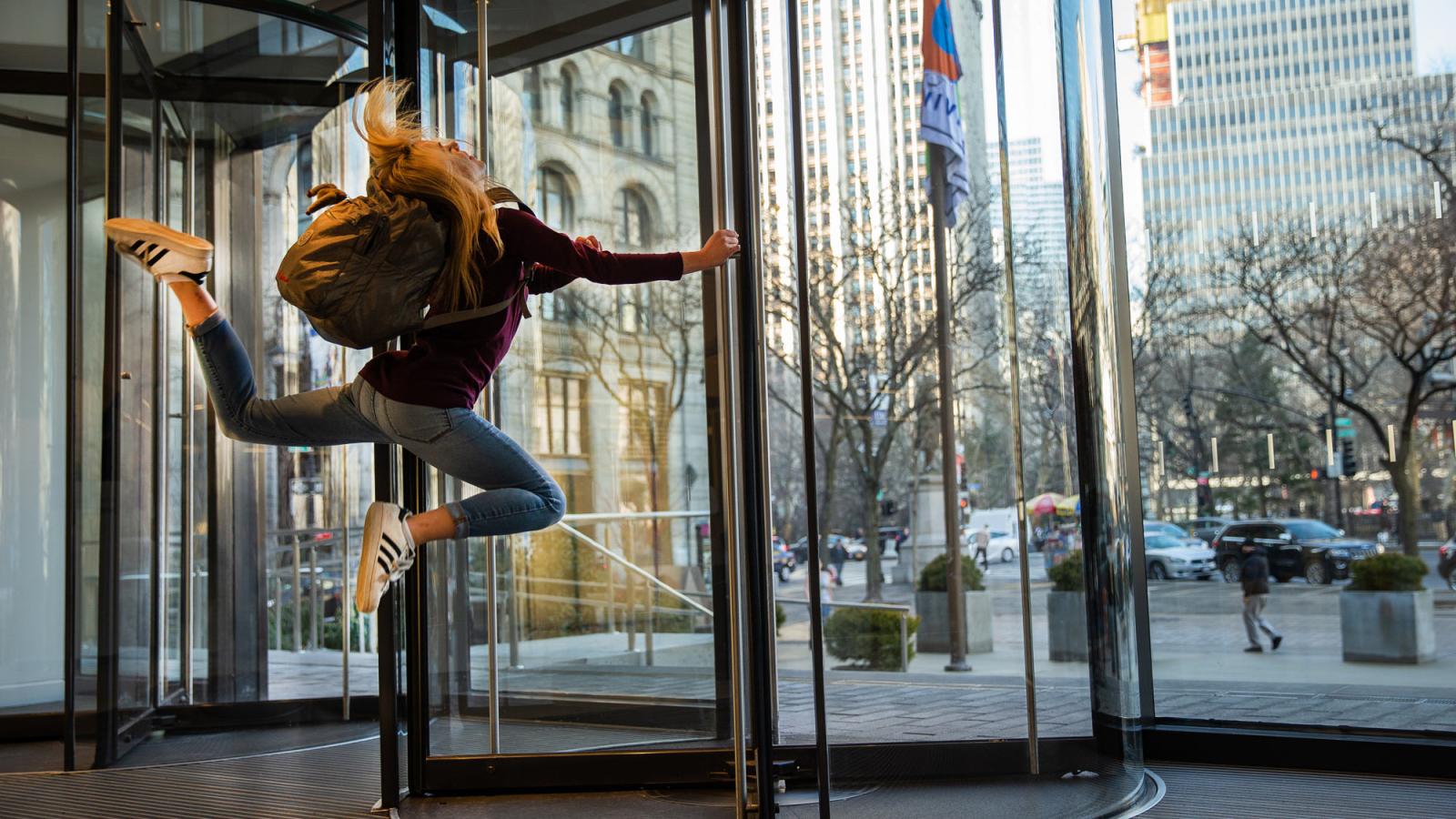
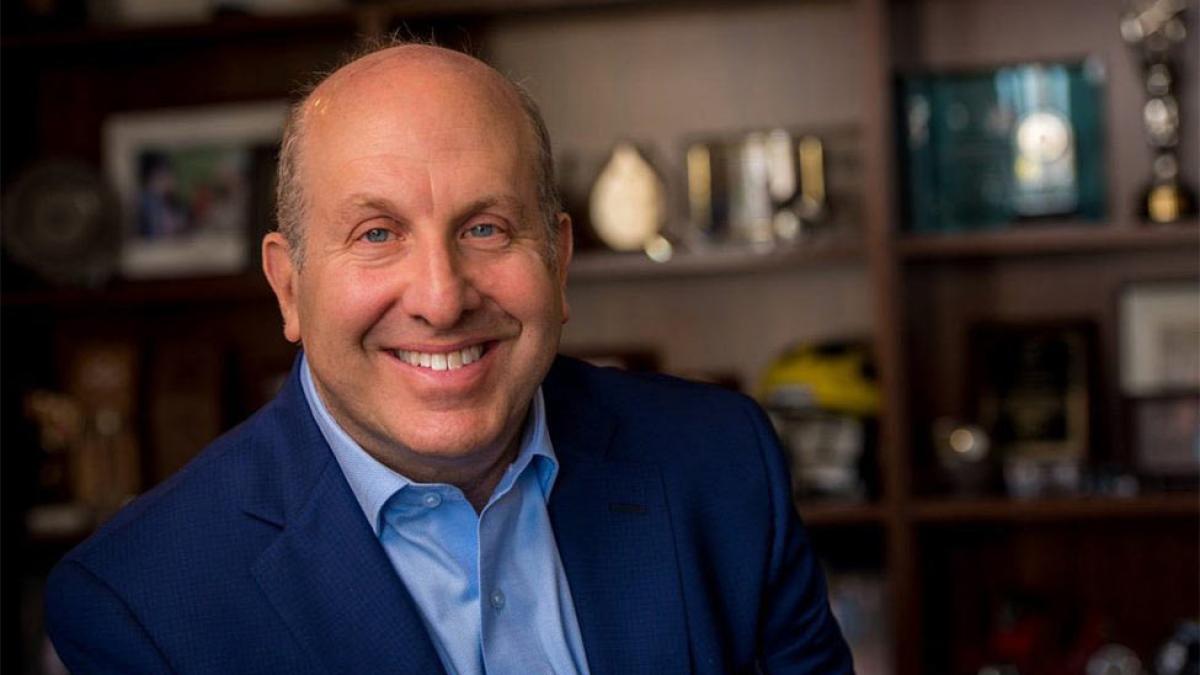
As the days get shorter and final exams ramp up, it’s time to reflect on the year that’s wrapping up.
It’s no exaggeration to say that 2023 has been a momentous one at Pace University. This year, we opened our brand-new 26-story campus center at 15 Beekman in New York City—and we started work on the renovation of the east side of One Pace Plaza that will bring us a state-of-the-art Performing Arts Center, an updated residence hall, and new classrooms and gathering spaces for the full Pace Community. In Pleasantville, our women’s lacrosse team became the first national championship squad not only in Pace history but in all of Westchester County history. The Elisabeth Haub School of Law was named the top environmental law program in the nation for the third consecutive year and the fourth time in five years. And in the biggest news of the year, in the spring Board Chair Rob Sands, JD ’84, and his wife, Pamela, made the transformation contribution that we recognized by creating the seventh independent school within Pace University, the new Sands College of Performing Arts.
As this issue of Pace Now demonstrates, there are exciting things happening all across our campuses. You can read about our Esports program, which launched only two years ago as Pace’s 15th varsity sport but is already well on its way to becoming a powerhouse. You’ll meet students who are up to remarkable things, from video game maker Michael Falco to environmental scientist and conservation expert Madelyn Garcia to international student Hitasha Nagdeo, who’s earning a master’s in social media and mobile marketing while holding down two different student assistant roles to Lucie Belle Flagg, who is raising awareness for people with hidden disabilities.
We’re also learned this year just how generous the people of Pace can be. The fiscal year that wrapped up in July set a record for contributions to Pace, with $43 million raised. That’s all money to support crucial efforts to support our important mission of Opportunitas—from donations for scholarships to capital investment to pay for construction and repairs to funding for critical student support initiatives. Just last week, the Pace Community surpassed our goal for Giving Tuesday, making 2,430 gifts totaling more than $800,000.
I’m grateful for that generosity, I’m grateful for our community, and I’m grateful for all that we’ve accomplished together this year. Have a wonderful and relaxing break and happy holiday season. I’m looking forward to the great things we’ll do together in 2024.
More from Pace
When Michael Falco took new course Game Development for Everyone, he never expected to end up building and coding his own arcade game—which you can play at its home on the Pleasantville Campus!
Pace student and UN Millennium Fellow Lucie Belle Flagg ’24 channeled both her frustrations and her energy into bringing greater awareness of hidden disabilities to the Pace Community. Through her collaborative work, she’s helped make Pace the first university in New York to officially launch the Hidden Disabilities Sunflower program.
Madelyn Garcia '23, '24, has already made a considerable impact at Pace. She spent the summer interning at Defenders of Wildlife, an organization that embraces an intersectional approach to conservation, as she prepares to graduate with a combined degree focused on environmental science, conservation, and policy.
Flower Power: Shining a Light on Hidden Disabilities
Pace student and UN Millennium Fellow Lucie Belle Flagg ’24 channeled both her frustrations and her energy into bringing greater awareness of hidden disabilities to the Pace Community. Through her collaborative work, she’s helped make Pace the first university in New York to officially launch the Hidden Disabilities Sunflower program.

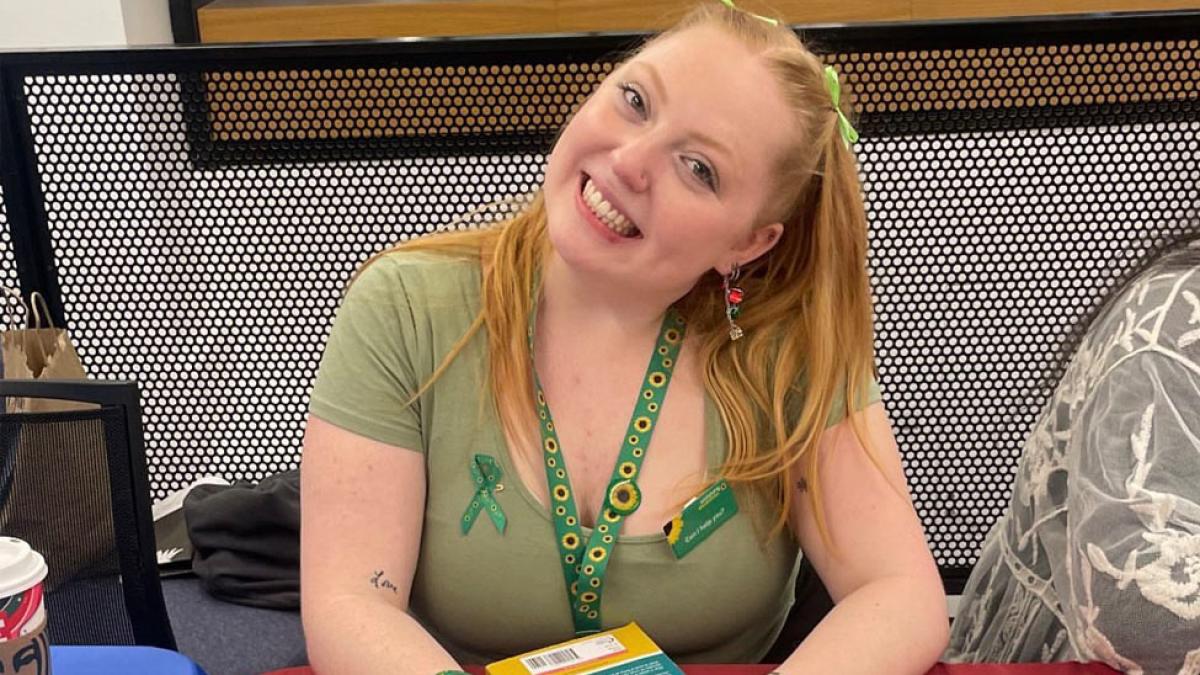
“When I first came to Pace, I had a very difficult time getting the accommodations I needed because my disabilities weren’t visible to the human eye,” recalls Film and Screen Studies student Lucie Belle Flagg ’24. “So many of my peers with hidden disabilities had also been turned down for accommodations and I realized that this was a serious issue at Pace. With such emphasis on Opportunitas at Pace, we needed to find a way to offer equitable access to such opportunities.”
So, Lucie got to work.
In March of 2022, she visited her sister who lives overseas in St Andrews, Scotland. There, Lucie was introduced to the Hidden Disabilities Sunflower and how it works worldwide to support individuals with hidden disabilities and help raise awareness. The sunflower is a globally recognized symbol for hidden disabilities and wearing one helps wearers to discreetly signal to people around them that they may need additional support or help in public areas.
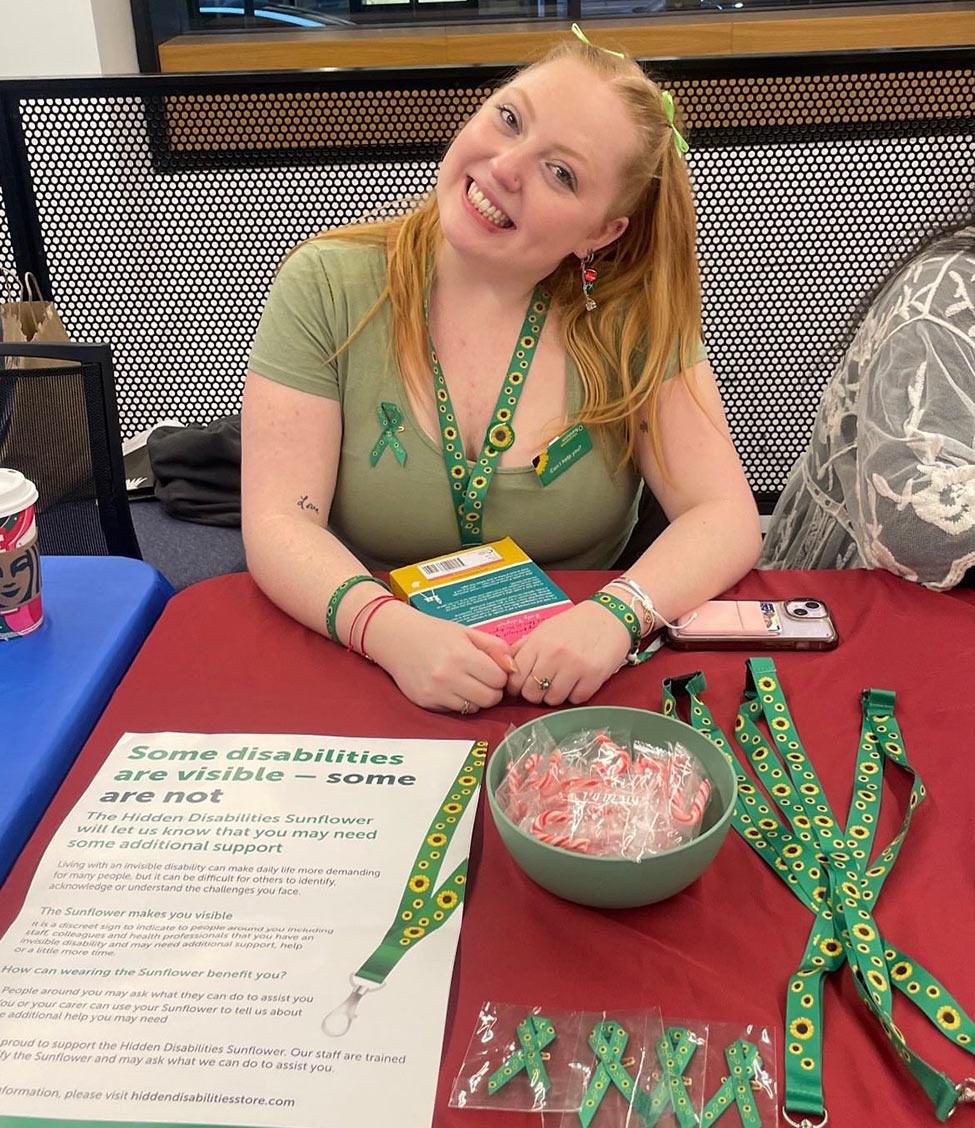
Hidden disabilities include, but are certainly not limited to, ADHD, anxiety disorders, autism, chronic fatigue syndrome, chronic pain, depression, epilepsy, food allergies, diabetes, Crohn’s disease, Lyme disease, fibromyalgia, Ehlers-Danlos syndrome, PoTS, multiple sclerosis, and so much more.
“Understanding the power of the Hidden Disabilities Sunflower project, I applied for the Millennium Fellowship—a fellowship program presented by the United Nations Academic Impact and the Millennium Campus Network,” she says. “My project proposal aimed to provide support to Pace students, staff, and faculty with hidden disabilities by participating in the Sunflower Lanyard Scheme.”
That summer, Lucie was accepted into the fellowship program and began her fundraising efforts for her project, Hidden Disabilities at Pace, with the aim of providing support for students, staff, and faculty on campus with hidden disabilities. Nearly 30 people from Pace and beyond backed her project, and she was able to collect almost $1,300 to purchase sunflower-themed lanyards which would be shared with the Pace Community.
“With the support of Dr. Sue Maxam, we were able to purchase a Hidden Disabilities Sunflower membership and hundreds of lanyards,” Lucie says. “Dr. Maxam and I largely rode solo throughout this process, so seeing people on campus getting involved makes all of the hard work worth it.”
“It’s key to spread awareness and advocate for inclusivity. You have the power to contribute to a more inclusive and accommodating community.”
Through her tireless efforts, Pace University has become the first university in New York to officially launch the Hidden Disabilities Sunflower program, empowering those with hidden disabilities to take up the sunflower icon as a means of representation and self-advocacy. “Anyone that self-identifies as having a hidden disability should consider getting involved by representing the sunflower on campus and educating their peers about hidden disabilities,” she says.
So, what can you do if you see someone in our community with a sunflower lanyard?
“The most important piece of advice for supporting people wearing a Sunflower lanyard is to be understanding and patient. Everyone’s disability is different, so you can’t make assumptions
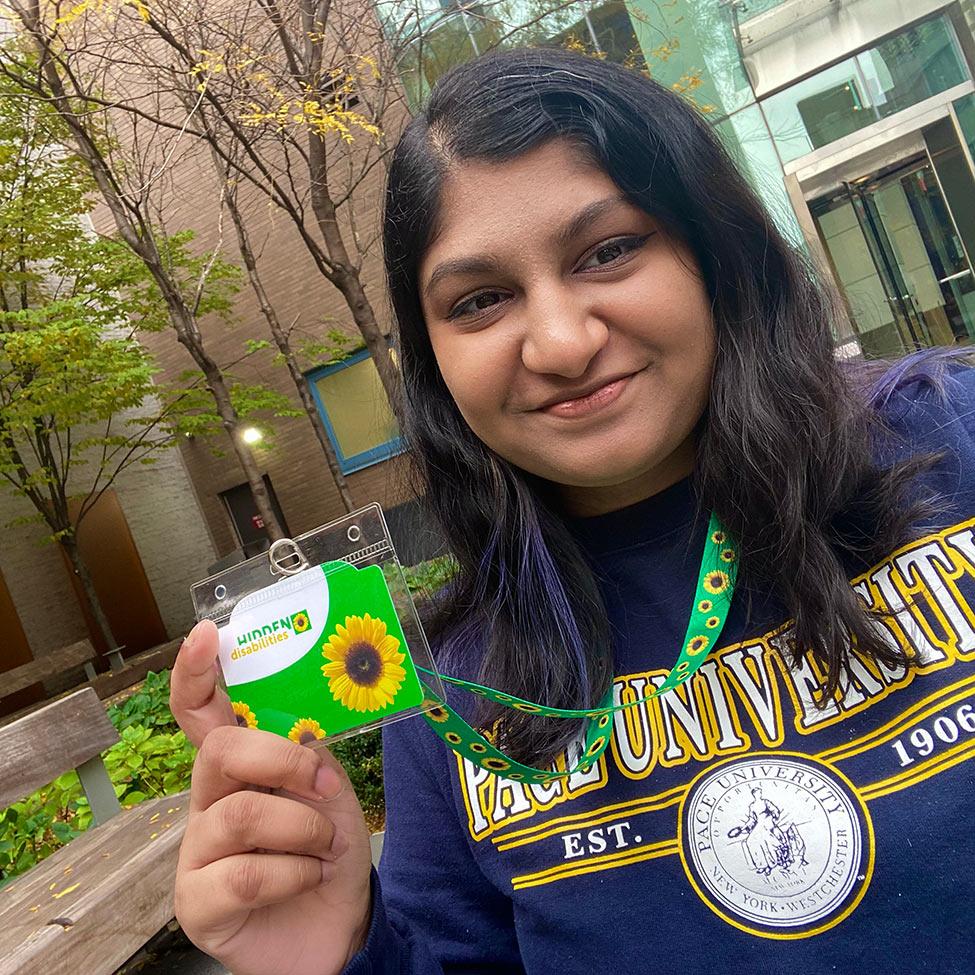
about their needs. It can be tricky to navigate a conversation about the Sunflower in a way that respects one’s privacy, but doing so can make a huge difference,” explains Lucie. “If you notice someone wearing the lanyard who appears to be struggling you can absolutely offer assistance. However, it’s essential to not insist. Respect their choice to decline help, as some people choose to manage challenges independently.”
"Being the first person to receive a sunflower lanyard at Pace is a privilege that I am so grateful for!" says Behavioral Neuroscience student Samara Durgadin '25. "As for my fellow lanyard wearers, I hope wearing the sunflower lanyard helps you feel less alone in your struggles and reminds you that your conditions are real and matter greatly, even if they don’t show outwardly."
“Personally, if someone asks me why I wear my lanyard, I am beyond happy to explain my disabilities. But that’s not the case for everyone. Don’t request details unless they choose to share them,” Lucie says, adding that it’s also very important to be aware of environmental factors. Avoiding crowds, loud noise, or bright lights can help people feel more comfortable and communicate better. “Lastly,” she says “It’s key to spread awareness and advocate for inclusivity. You have the power to contribute to a more inclusive and accommodating community.”
"To be able to receive a sunflower lanyard and then see my peers wearing them warms my heart and lets me know I’m not alone," adds Samara.
Want to pick up a sunflower lanyard of your own? Head to the main security desk at One Pace Plaza. Unlike the process for formal accommodations, picking up a lanyard requires no proof of diagnosis or documentation. You can simply ask a security guard for a lanyard, and they will happily give you one with no questions asked.
If you’re ready to learn more about Lucie’s project, follow @hiddendisabilitiesatpace on Instagram. To learn more about the Hidden Disabilities Sunflower, check out their official website.
More from Pace
When Michael Falco took new course Game Development for Everyone, he never expected to end up building and coding his own arcade game—which you can play at its home on the Pleasantville Campus!
A firsthand witness to its ascent from a nascent club to a veritable powerhouse in competitive gaming, Julia Cardillo ’22, Assistant Director of Esports, shares her insights on the evolution of Pace's Esports program.
The Pace Community's incredible generosity on Giving Tuesday surpassed our goal, resulting in 2,430 gifts and over $823,901 raised for student success.
Q&A with First Generation Student Amber Brouwer '24
Amber Brouwer '24 shares her insights on the unique challenges and surprising strengths she's realized on her journey as a first generation student at Pace, highlighting the importance of community and resourcefulness in shaping her college experience.
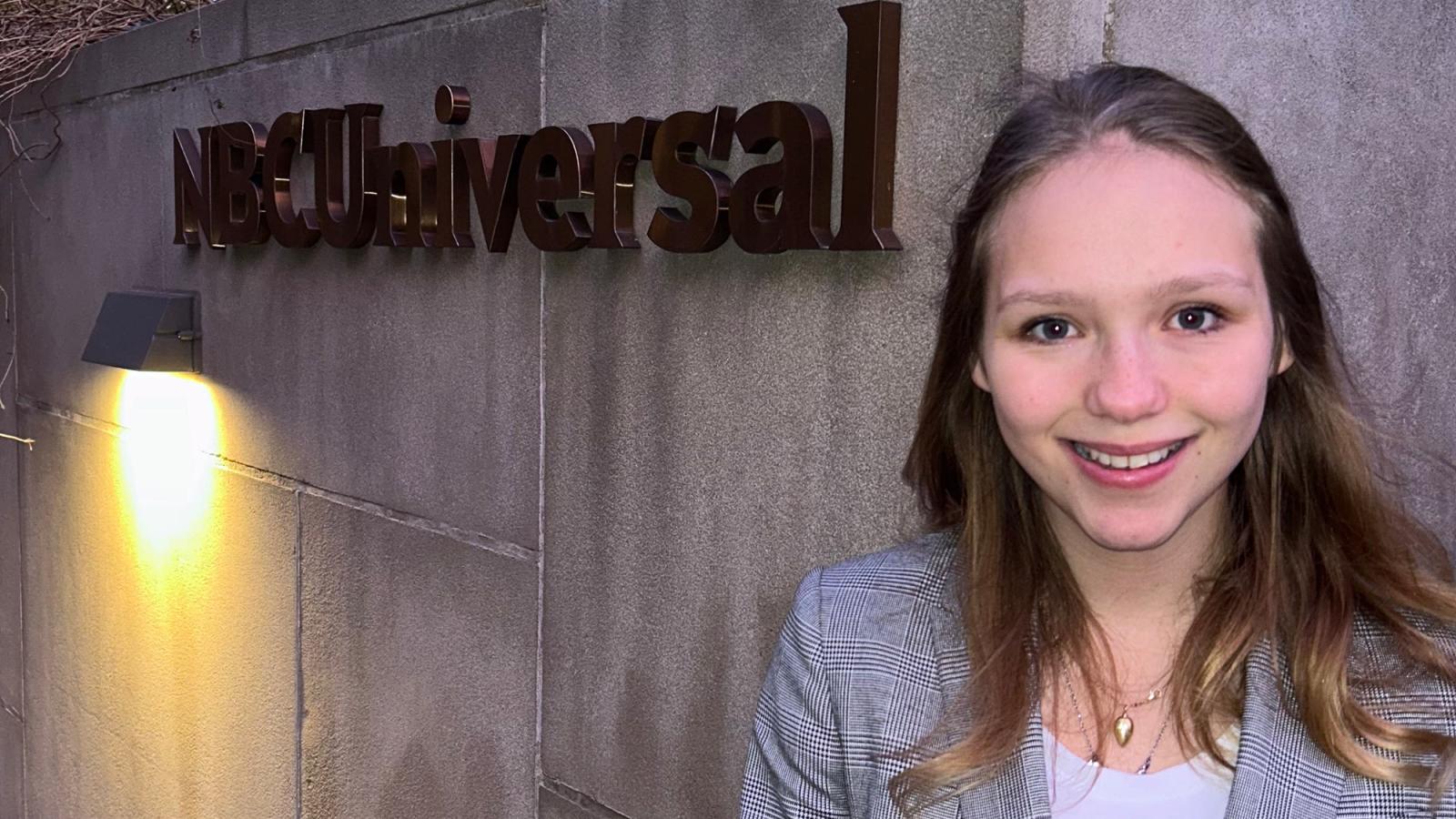
Amber Brouwer '24 is navigating her Pace University journey with a blend of independence and curiosity that are trademarks of first generation students. While pursuing her bachelor’s in Applied Psychology and Human Relations, she's also balancing her roles as an honors resident assistant, peer leader, and student aide, while taking on career-building opportunities like an internship at NBC Universal.
Amber is making the most of her time at Pace, creating a multifaceted college experience that is tailored to her ambitions. She took the time to share a bit about her experience as a first generation student, and the unique challenges and unexpected benefits that comes from tackling college as the first in her family to do so.
What does it mean to you to be a first generation student?
Being a first-gen student means that I have had to figure a lot of logistics out myself. This could be challenging but it also means that there was no one to tell me that there were things I had to do or things I couldn't do. This allowed me to really be able to create the Pace path I wanted and to create new opportunities for myself and others around me.
What are some of the challenges of being a first generation student?
My family members don’t always understand the stories I tell them about my college experience. It used to worry them when I said I was taking classes that seemed unrelated to my major or when I decided to switch my major completely. I had to explain the system to them and learn how to navigate those conversations differently, which is why finding community has been so important. They understand the struggles you’re going through and remind you that you aren’t alone.
What are some of the secret ‘superpowers’ first-gen students possess?
“Being a first generation student has affected me in such a positive way. Yes, things were harder at first, because figuring out all of the right paperwork and financial aid on your own can be hard. But I also wanted to take every opportunity I had. I saw these four years as the time for me to try every club, job, and opportunity that I found interesting.
Being a first generation student has made me extremely resourceful and able to figure things out no matter how hard they are, which are skills I use in jobs and interviews all the time. “
Why is it important to be part of a first generation student community?
Finding community with other first generation students is important because they understand the struggles that you are going through. It reminds you that you are not alone. Even though I enrolled during the pandemic, I was able to create a very tight knit group of people that were, just like me, on campus every day, as well as get to know the faculty and staff so much better.
During my first year, I especially got to know our first generation mentor/mentee group pretty well. My first generation mentor was amazing, and we still talk. She helped me with getting resources, gave tips and tricks about financing college, and told me about her time at Pace and how she achieved her goals. I loved her so much and am so grateful for this program.
Why did you choose Pace?
The main reason I chose Pace was the proximity to NYC and how easy it was to commute back and forth if I wanted to find an internship there. Over time, I learned more about the amazing connections Career Services has and all of the other amazing opportunities.
What’s been the best part of your Pace experience?
The best part of my Pace career is meeting all of the amazing people I have gotten to know. Both students and professors have made this experience so great and even though I am excited to graduate, I will also miss everyone. Pace has so many opportunities and I am glad that I chose this school four years ago.
What would you tell fellow first-gen students thinking about coming to Pace?
My experience at Pace has been great. I have taken the opportunity to explore so many things here. Pace makes it so easy to get involved, I would really encourage everyone to just show up to club meetings, events, or even the student engagement office, and get to know your fellow students.
More from Pace
Join Danielle Shoulders '24 on her transformative journey as a first generation student at Pace, where she's making every moment count. From her Environmental Studies program, student clubs, internships, and more, learn how she's overcoming challenges and helping create a vibrant community.
Meet D'Andrè Butler and follow along with his inspiring journey as a first generation student at Pace, balancing academics, work, and club leadership with an unwavering quest for independence. Read on to explore his unique challenges and triumphs, and how he's shaping his future at Pace.
Get to know Valentina Rojas Abreu '24, a first-gen student and President of the First Generation Program at Pace, as she shares her journey of independence and community, and offers insights into the challenges and strengths faced by first-gen students.
